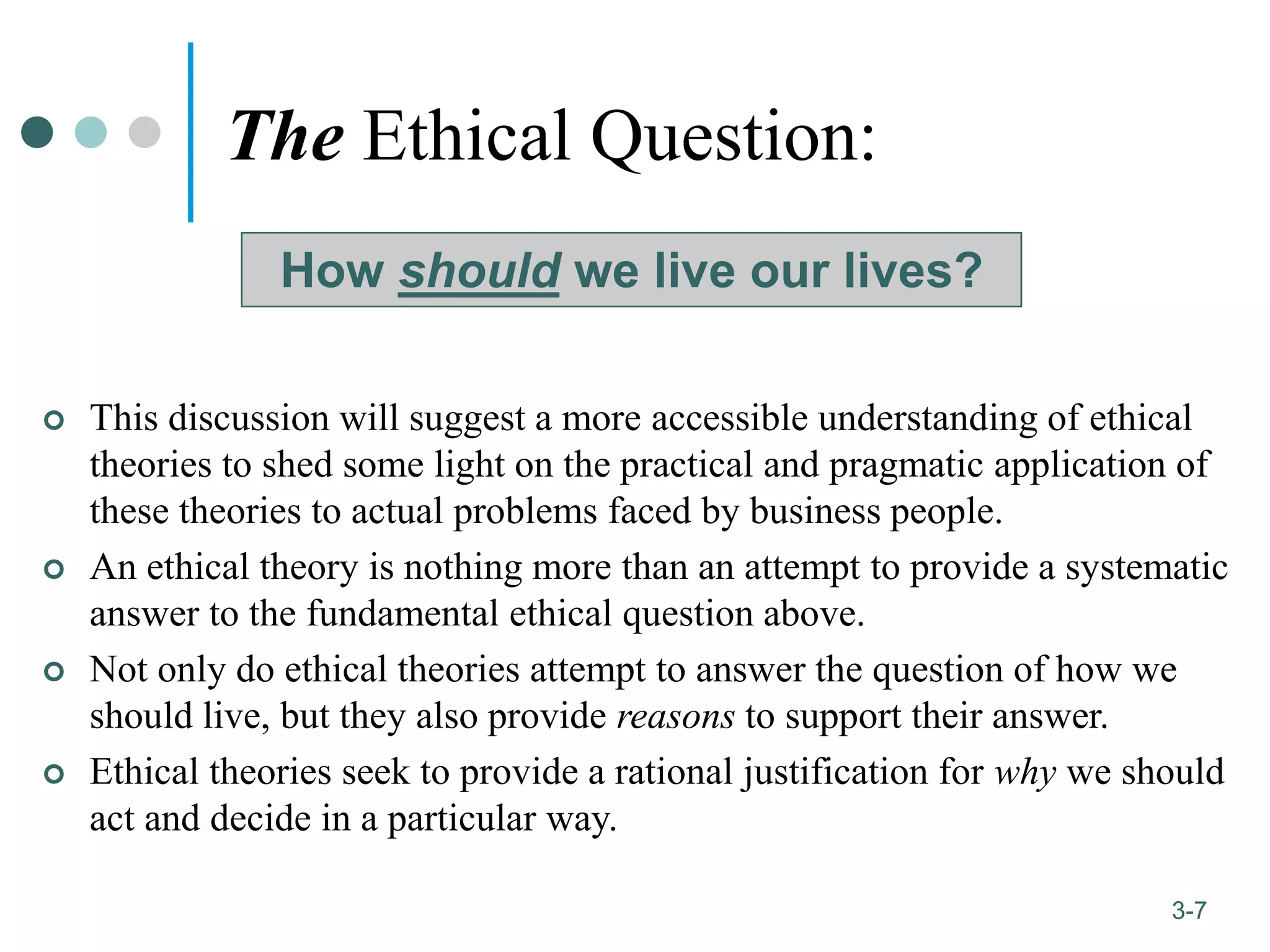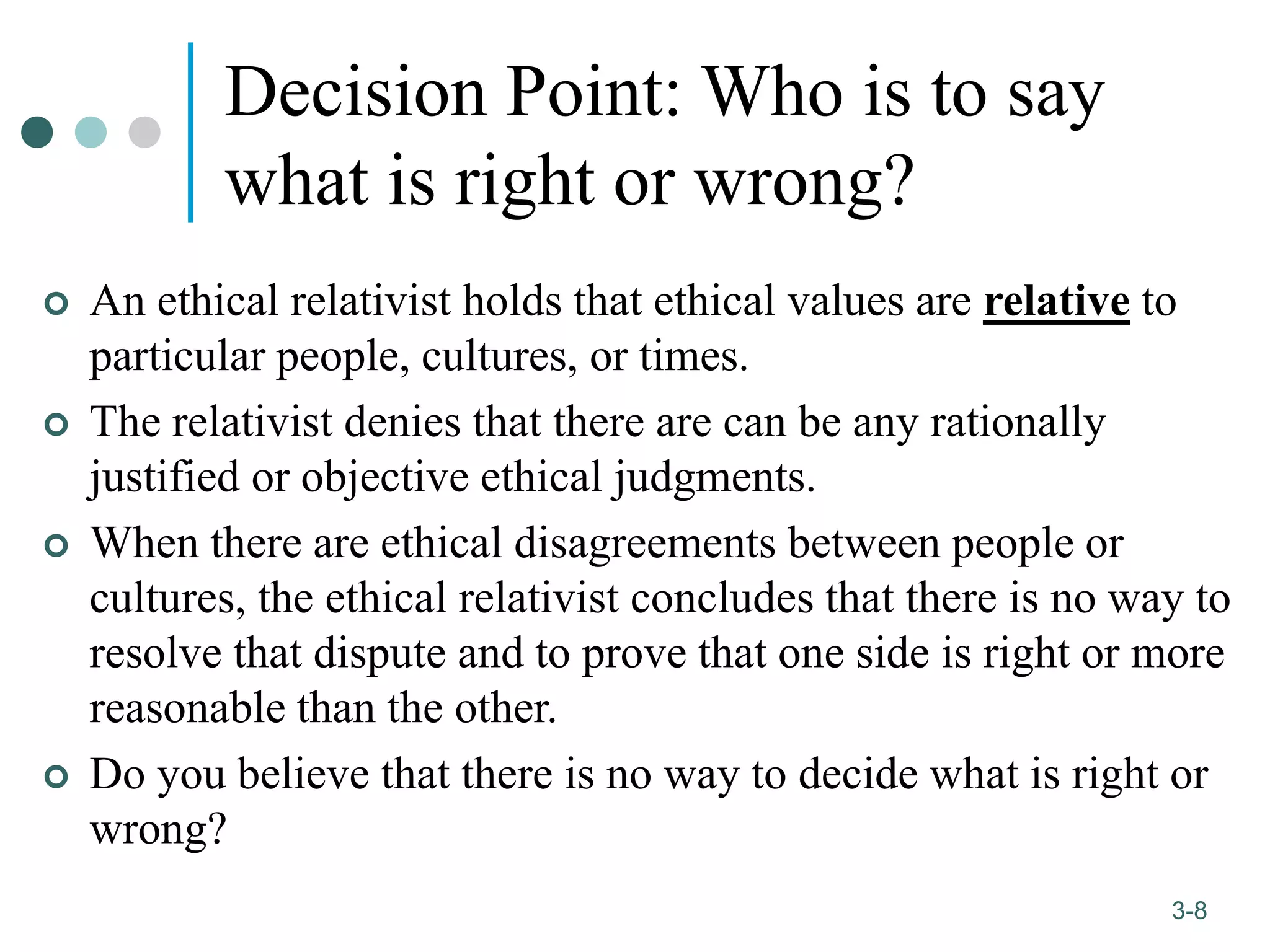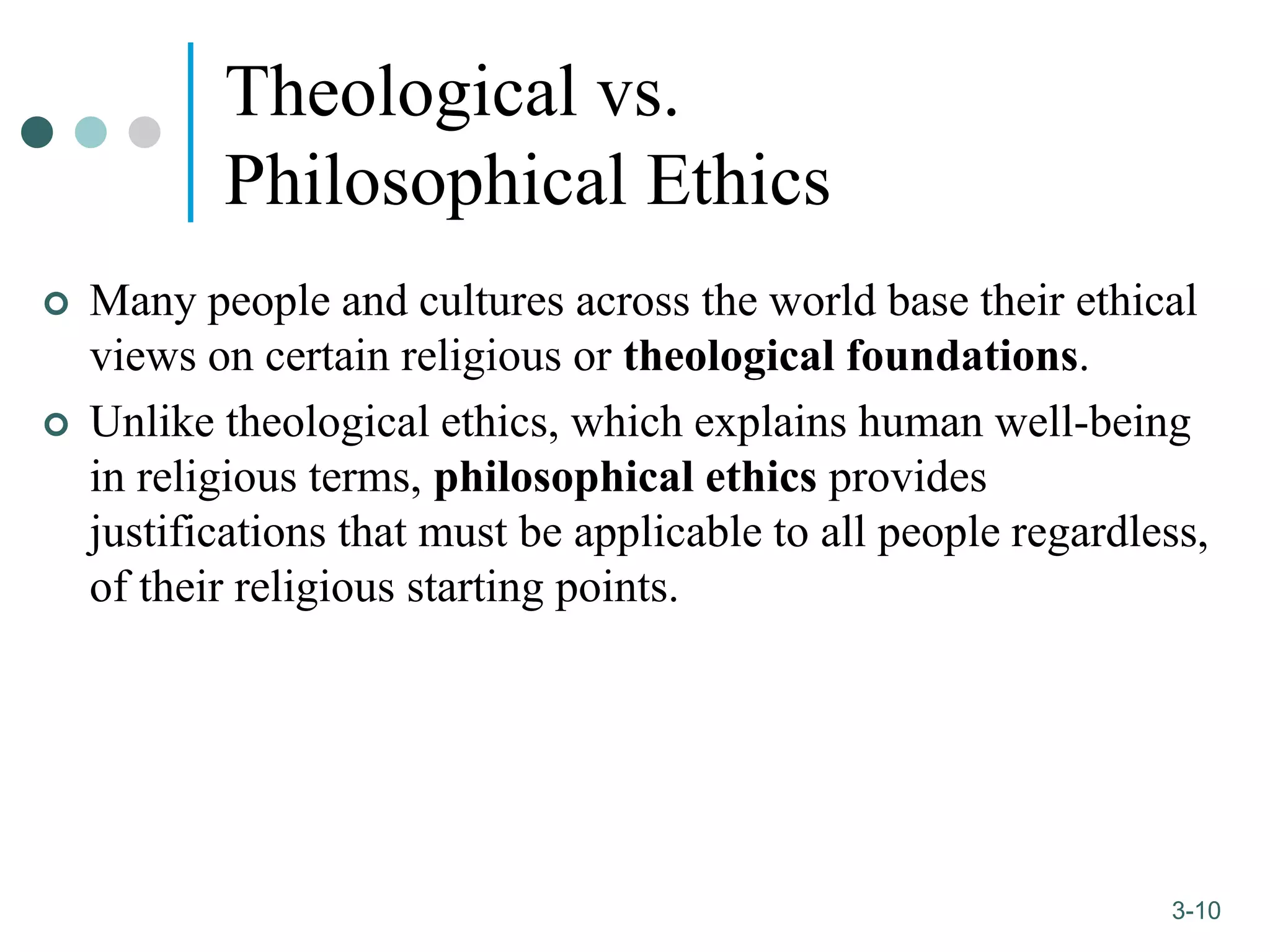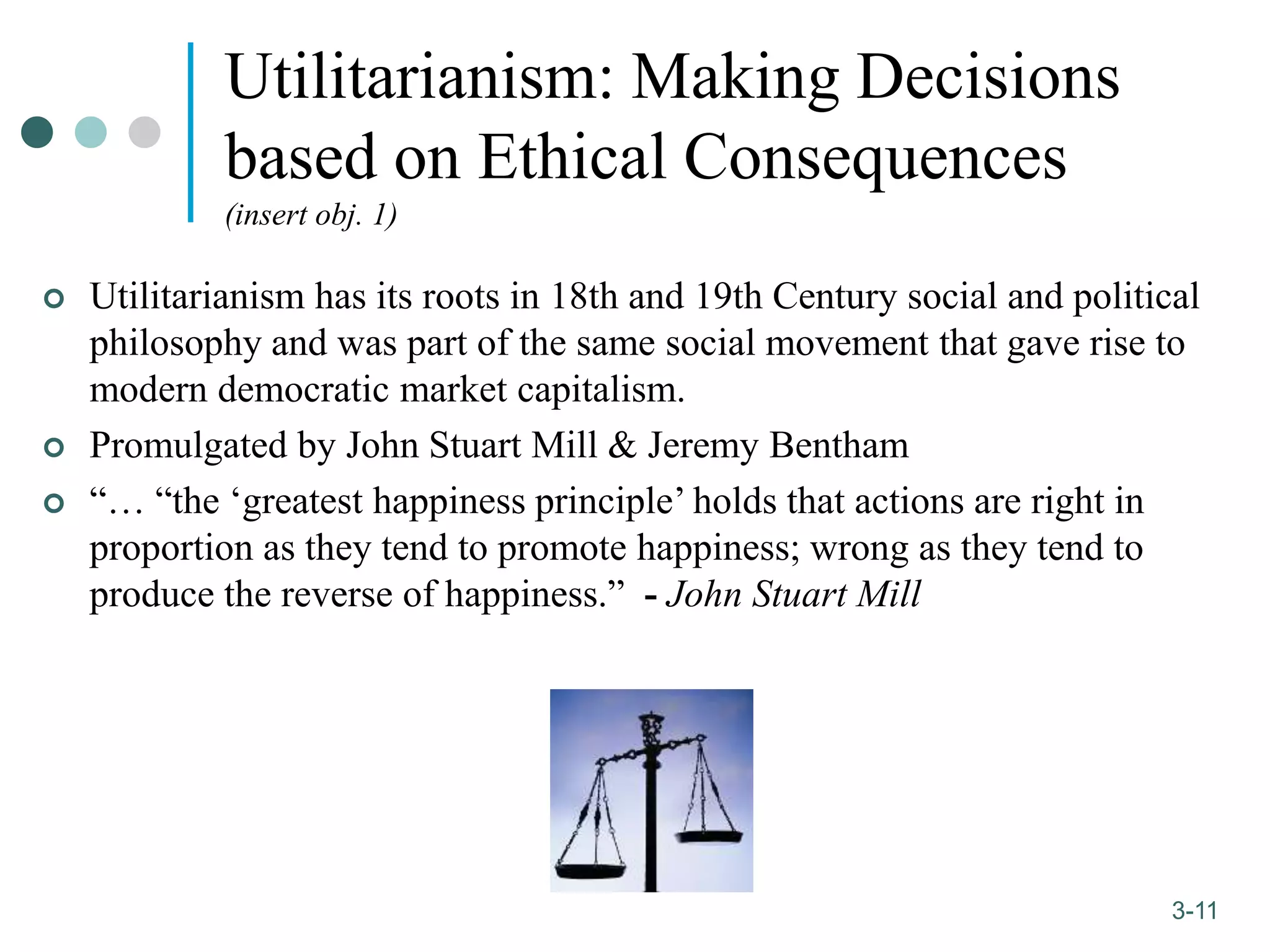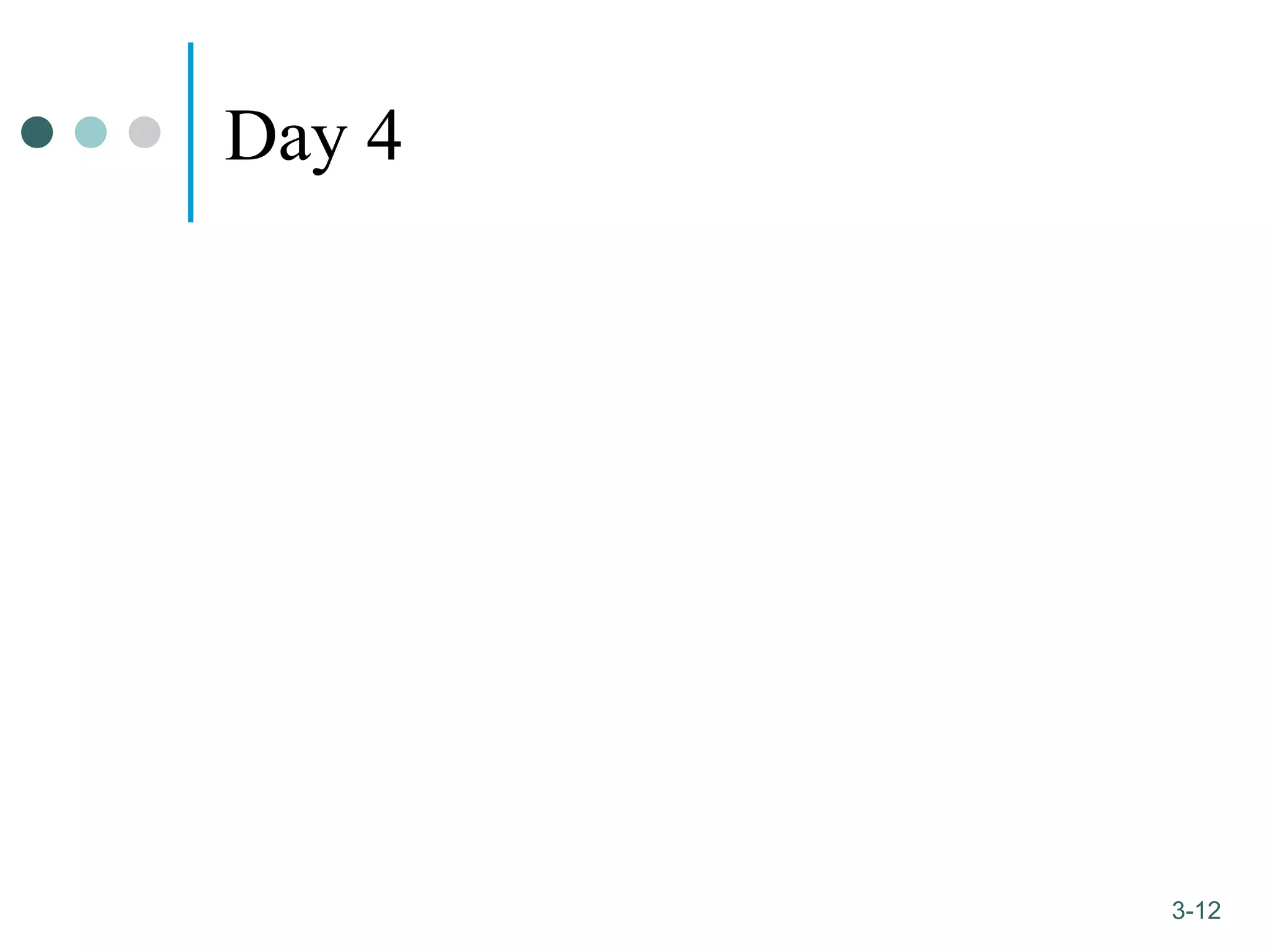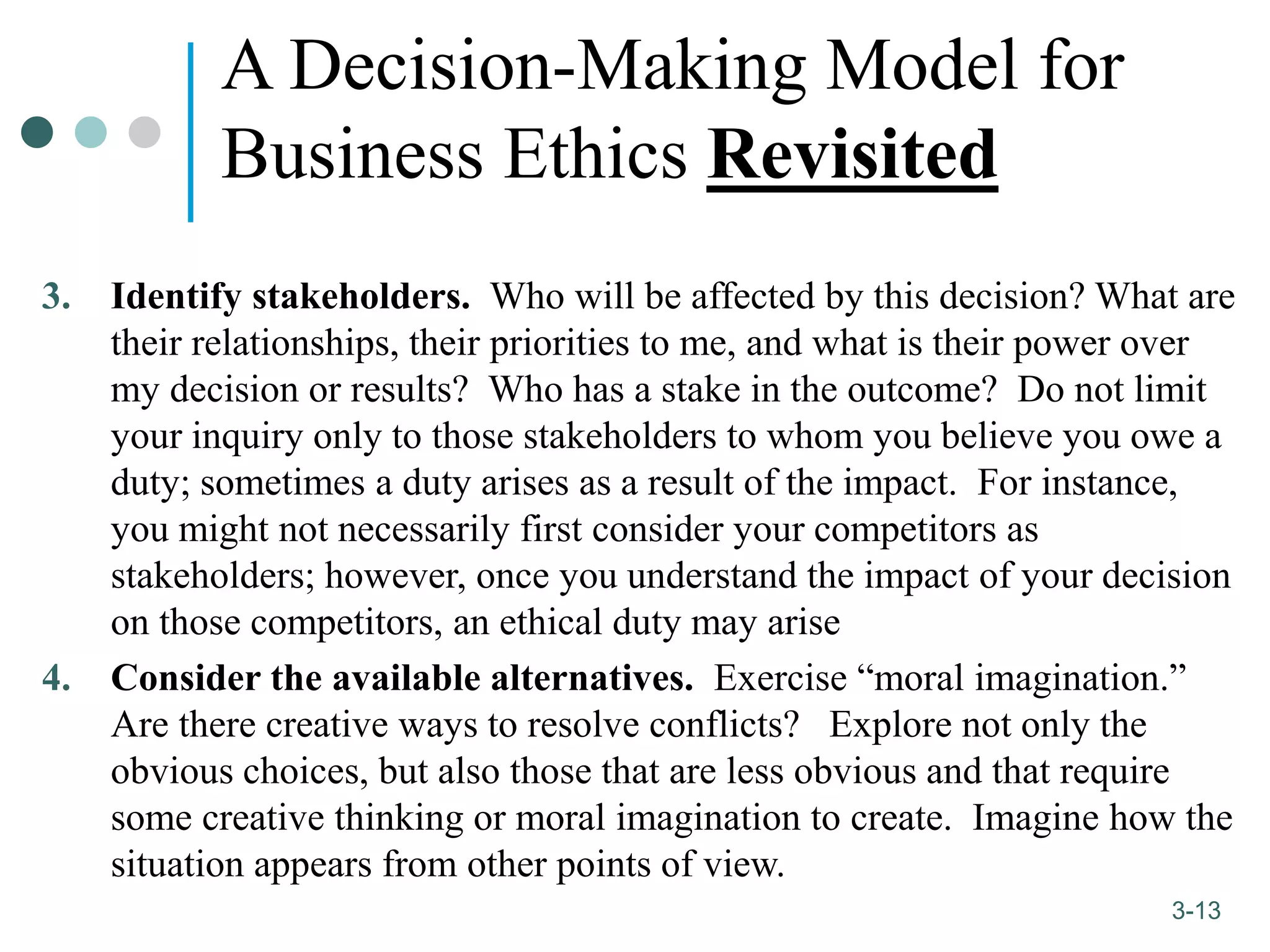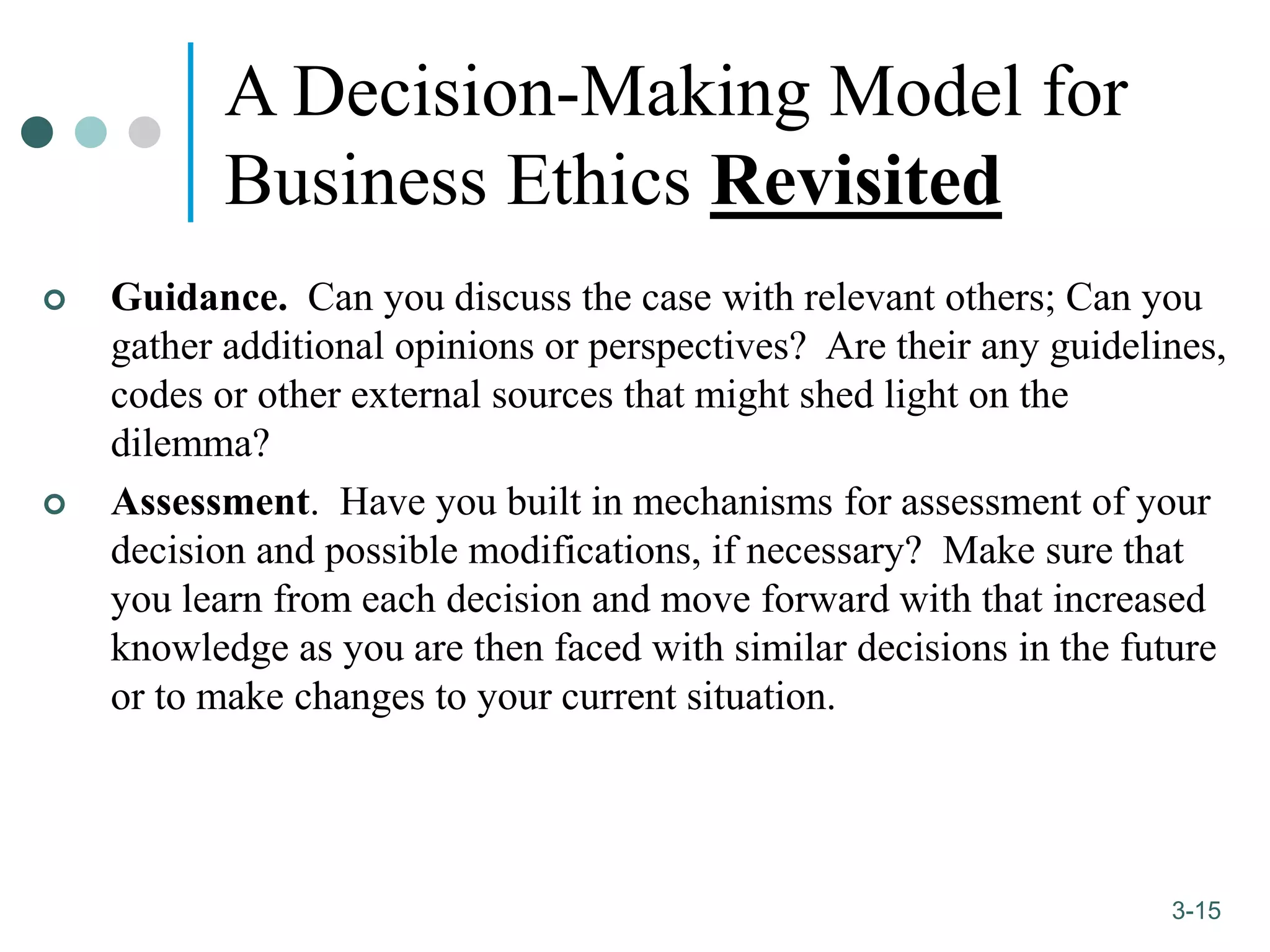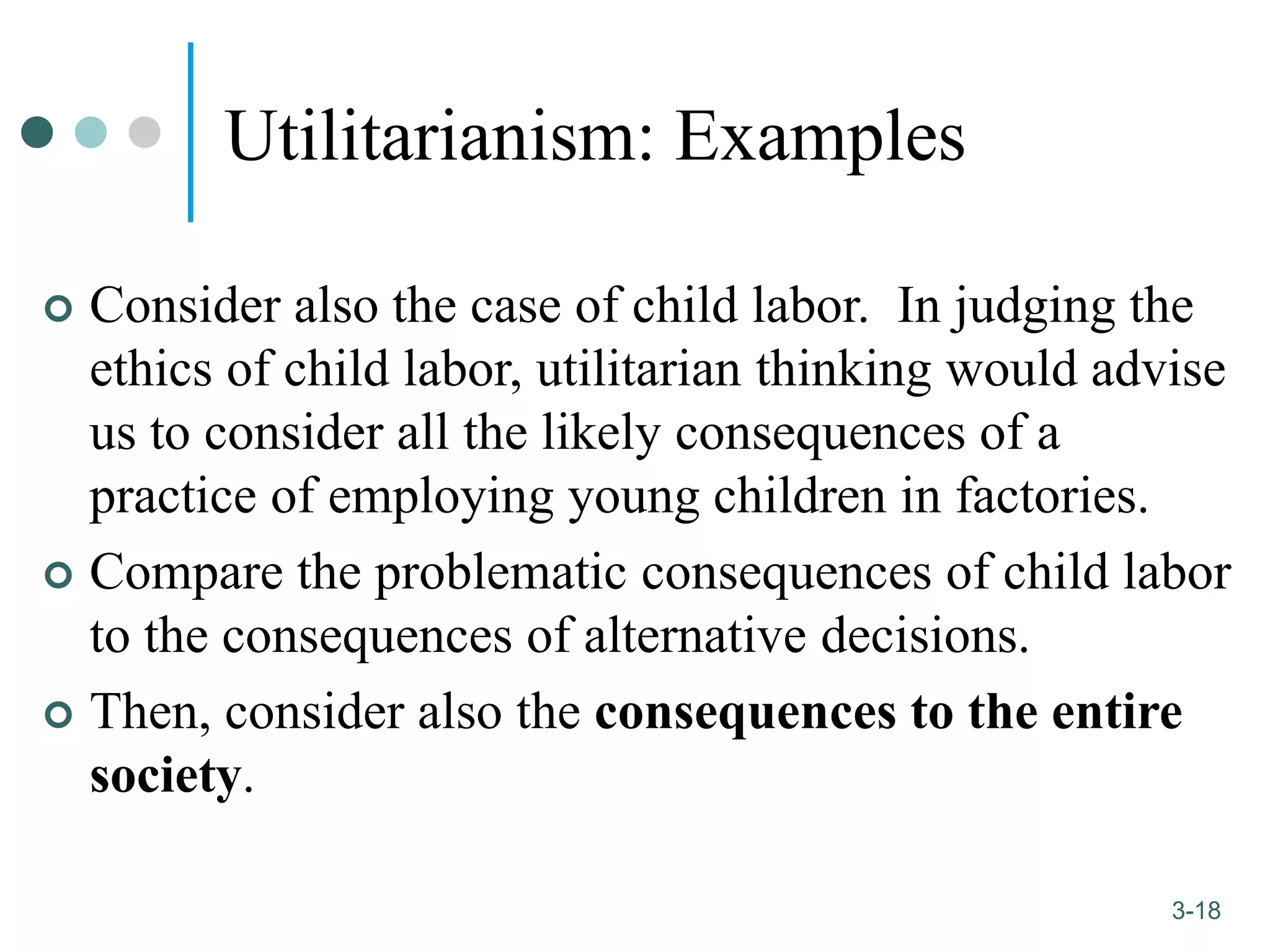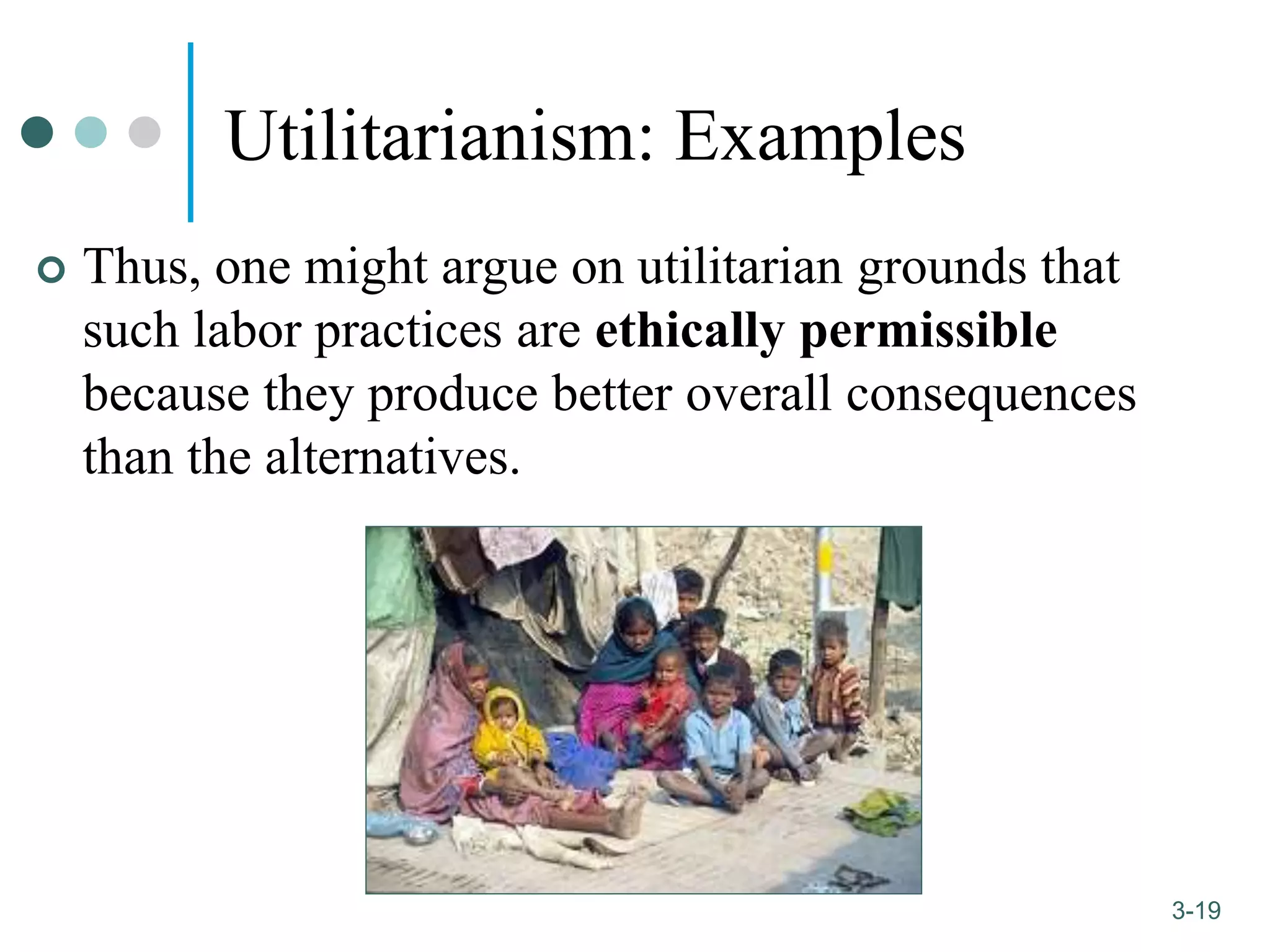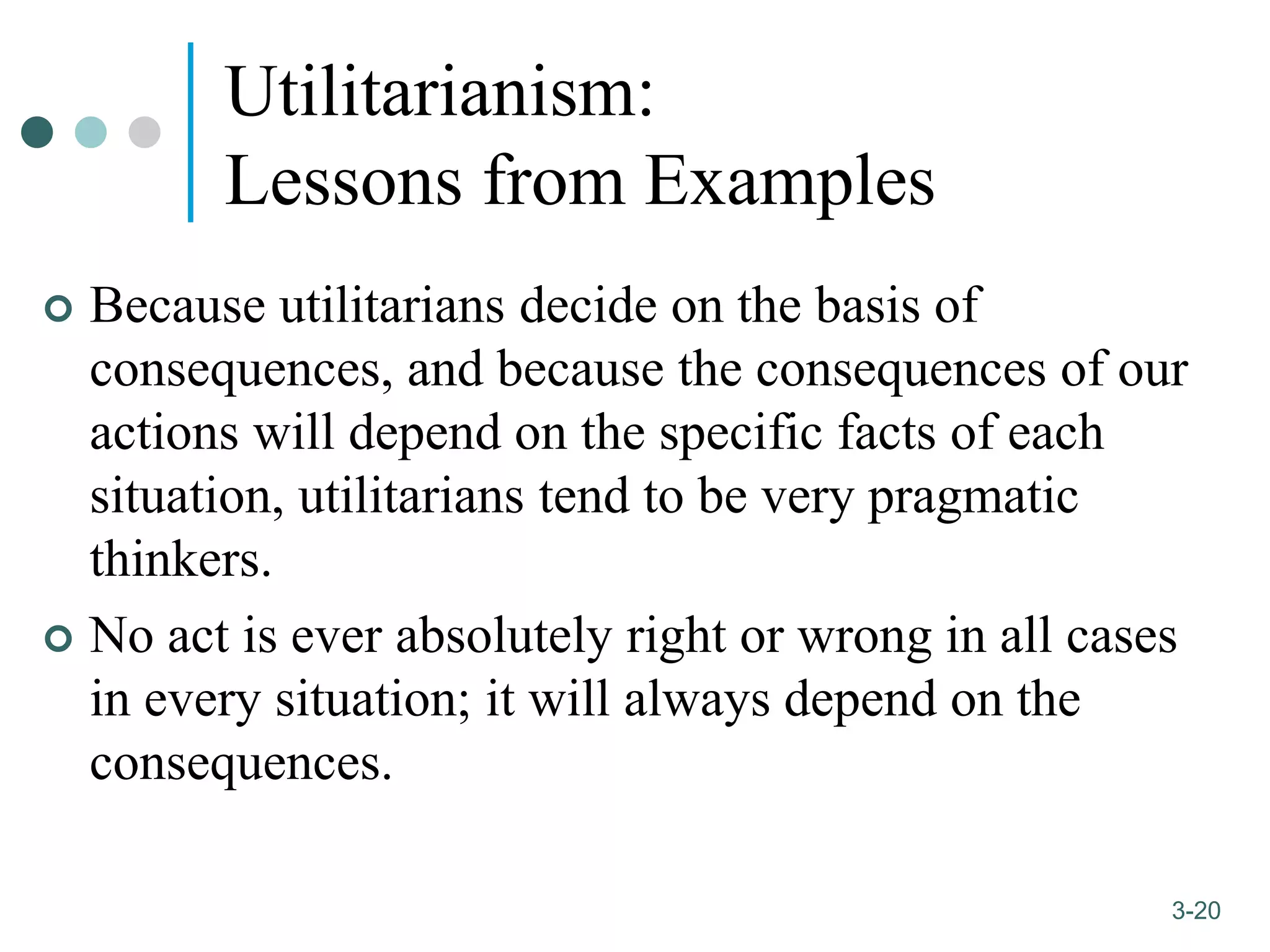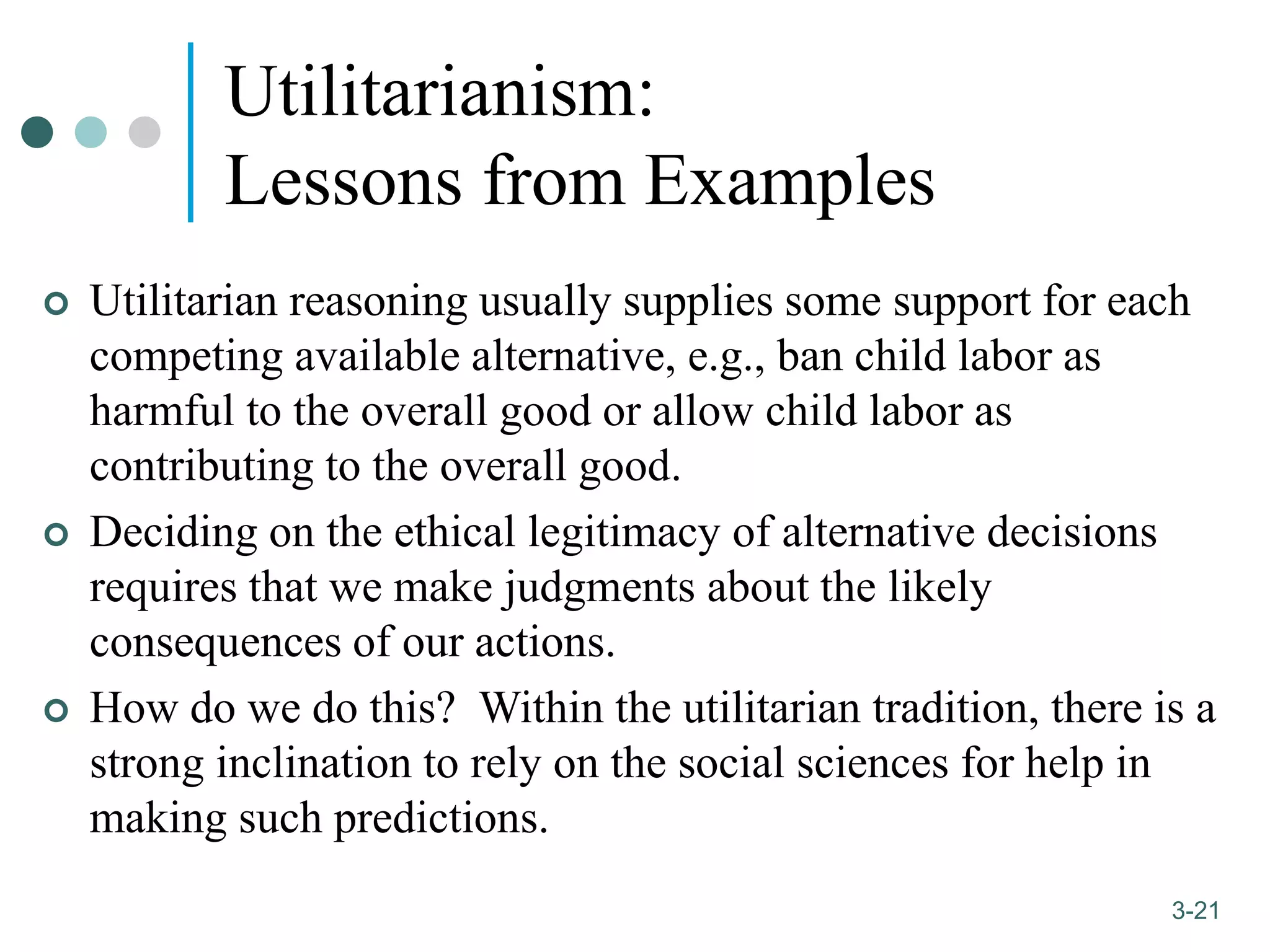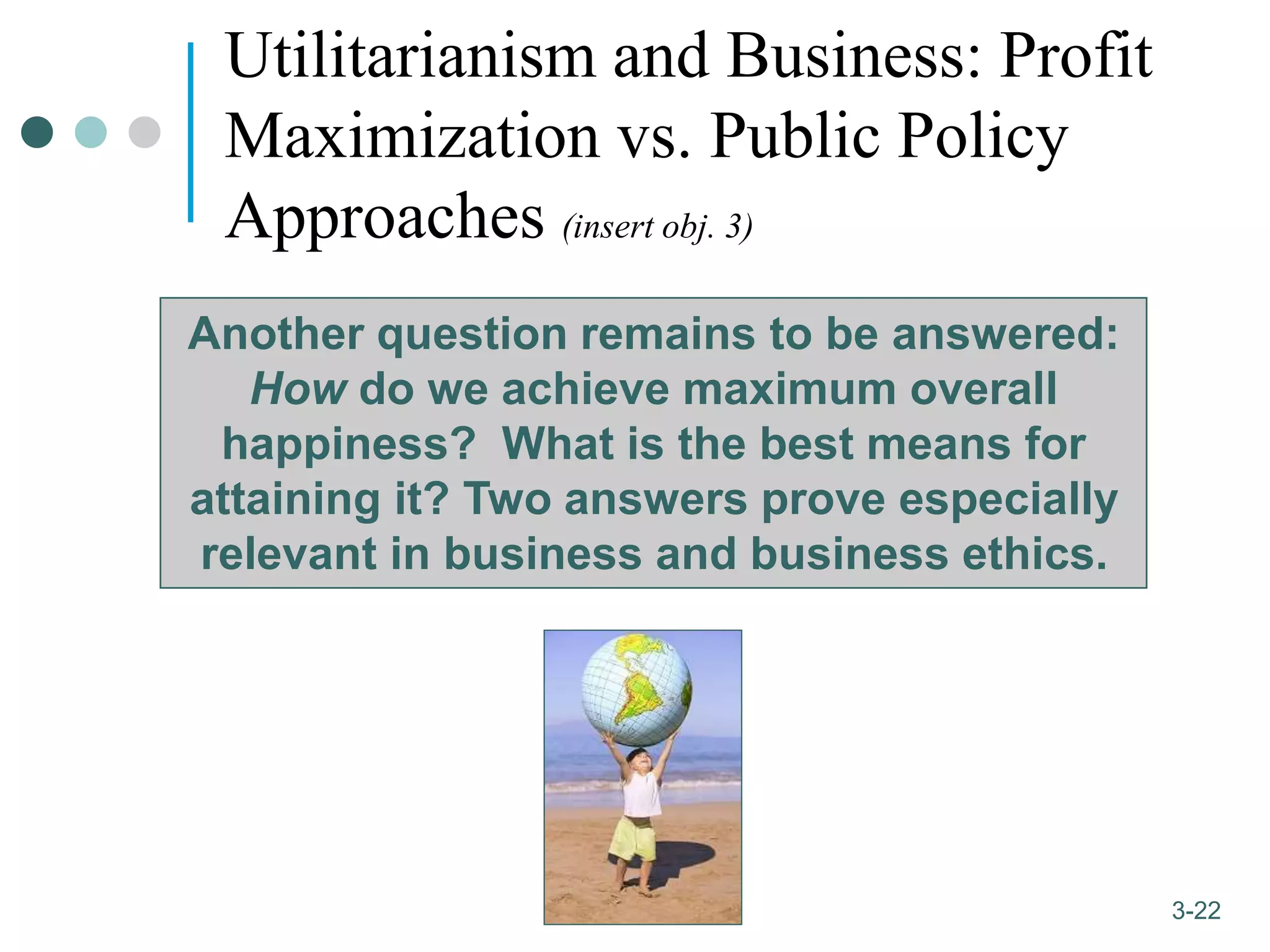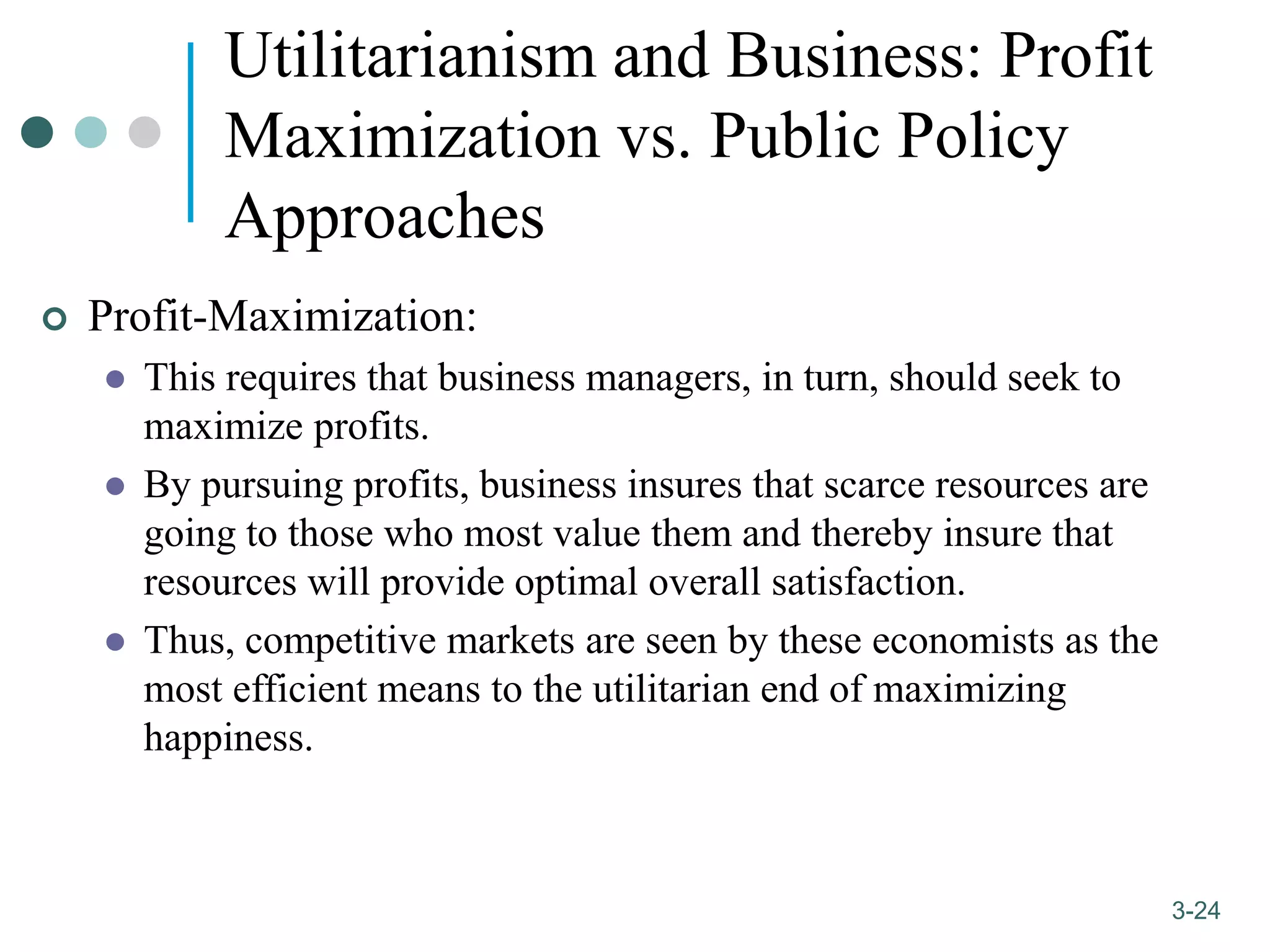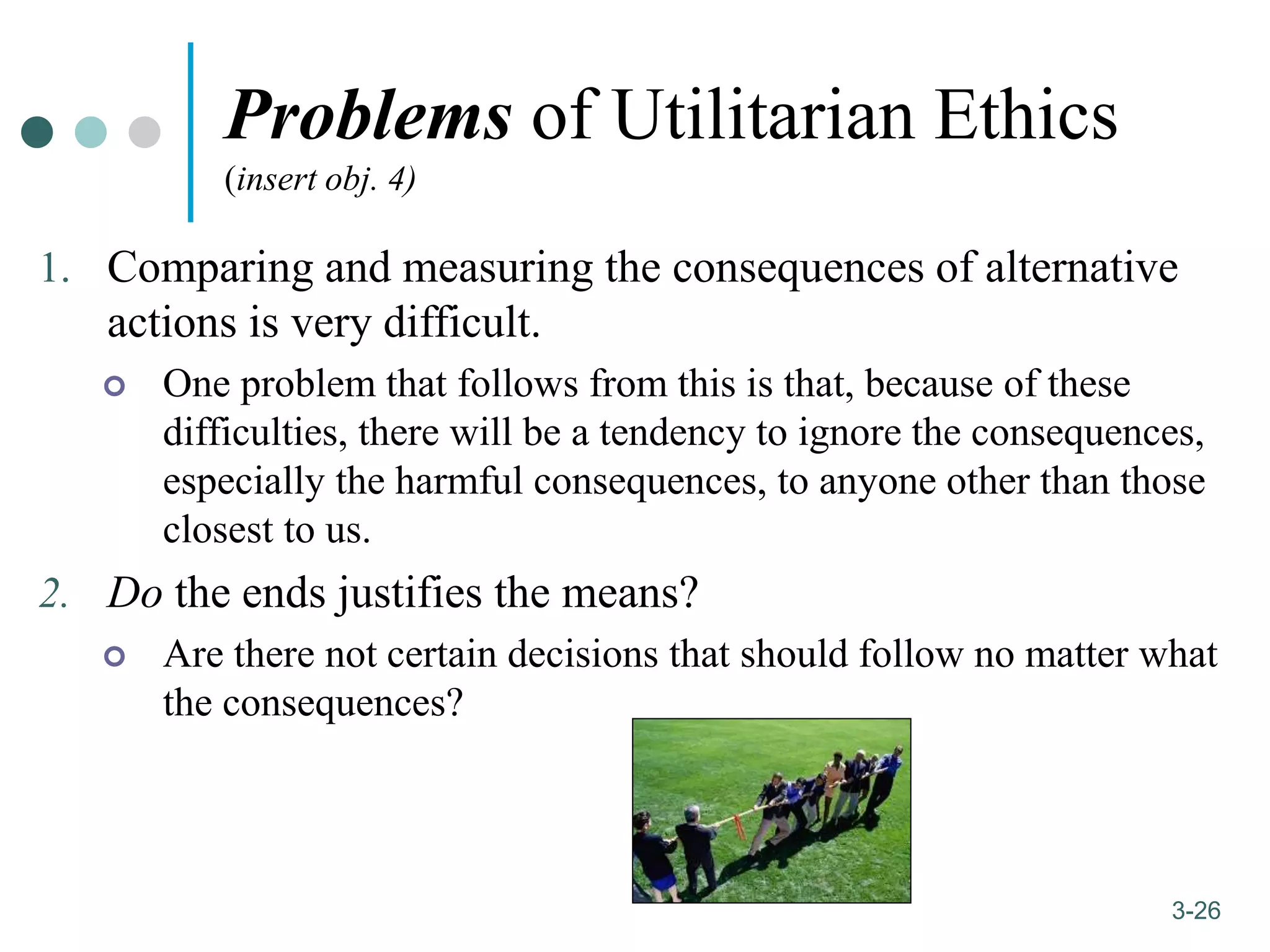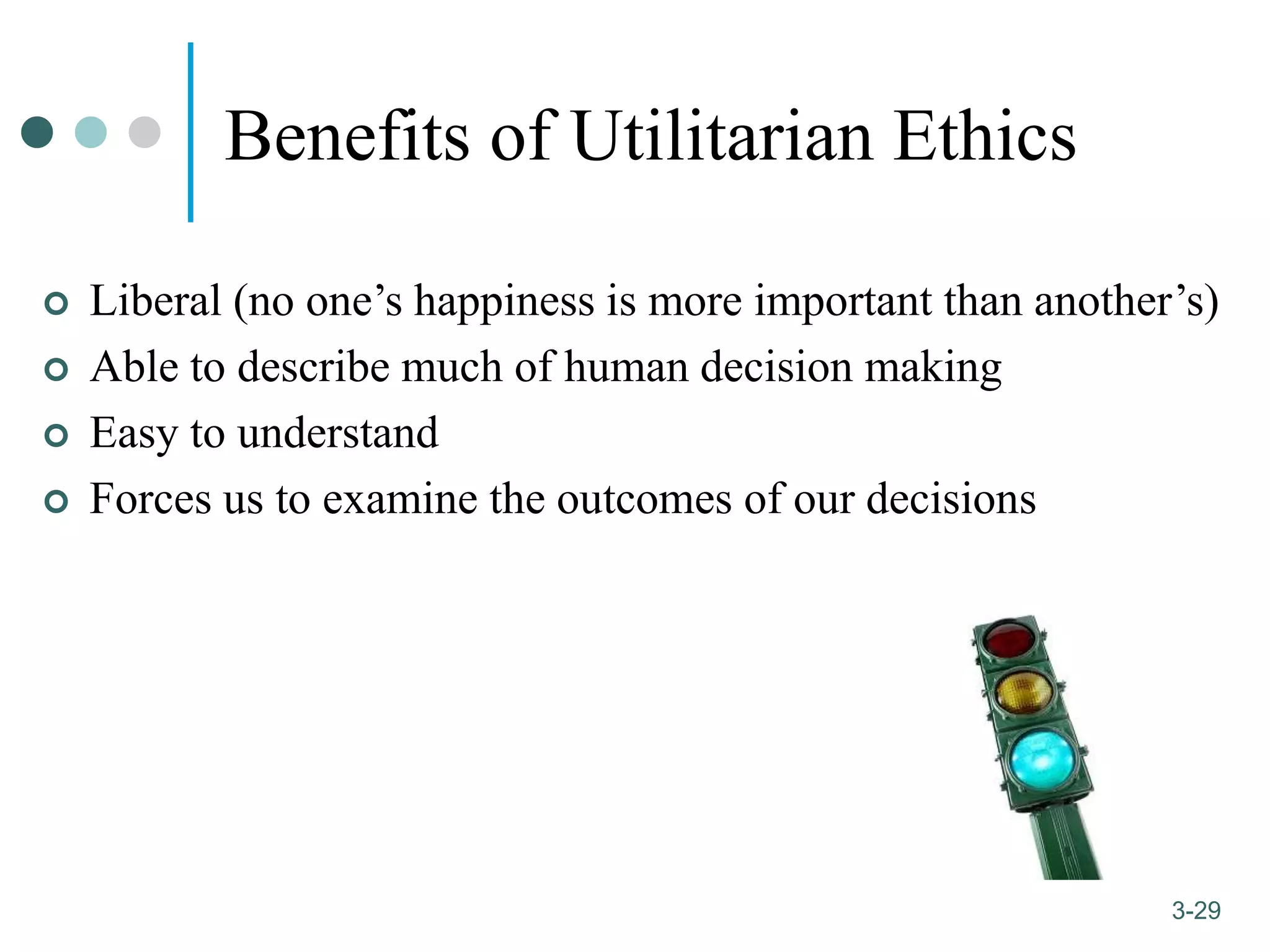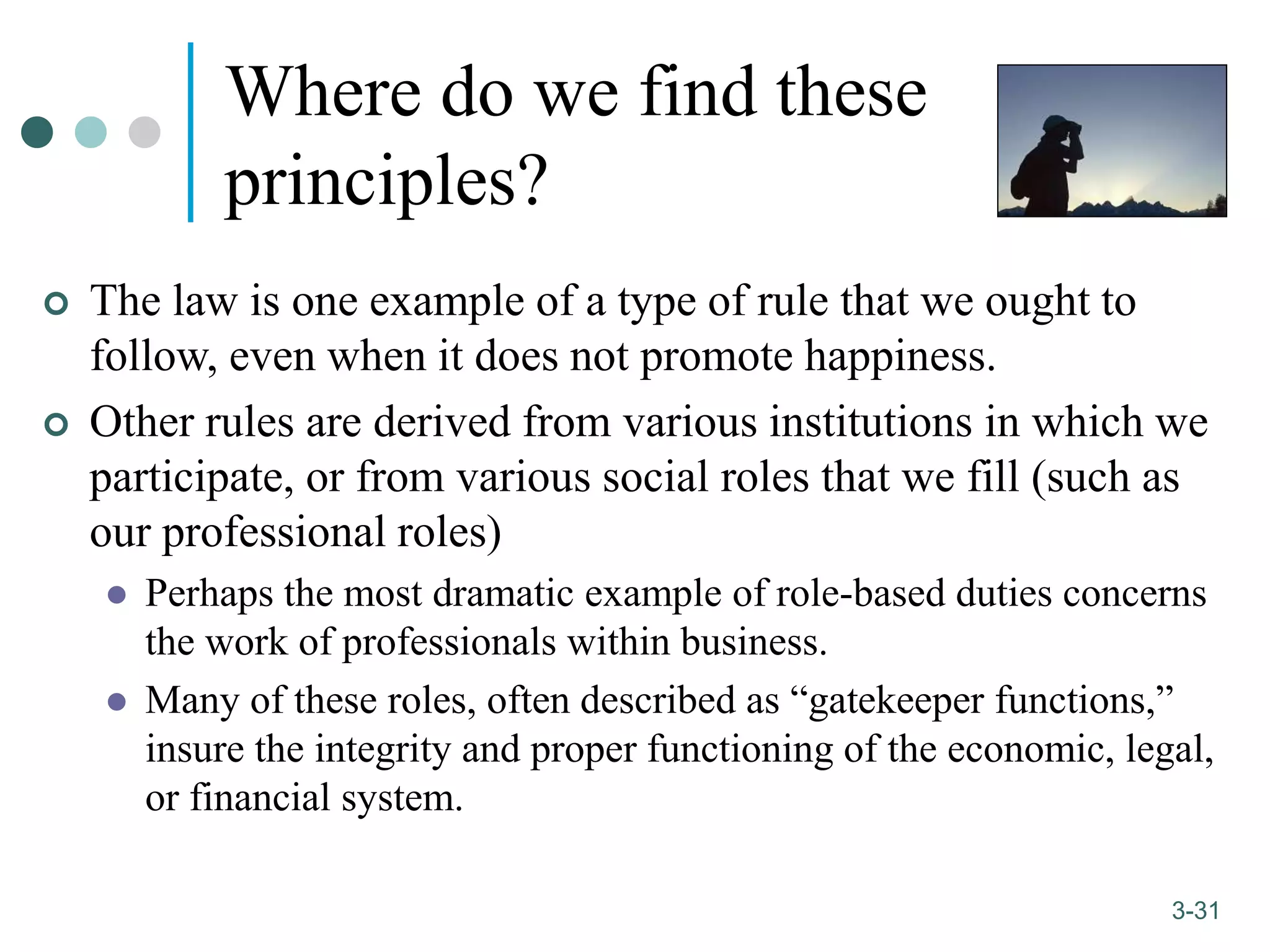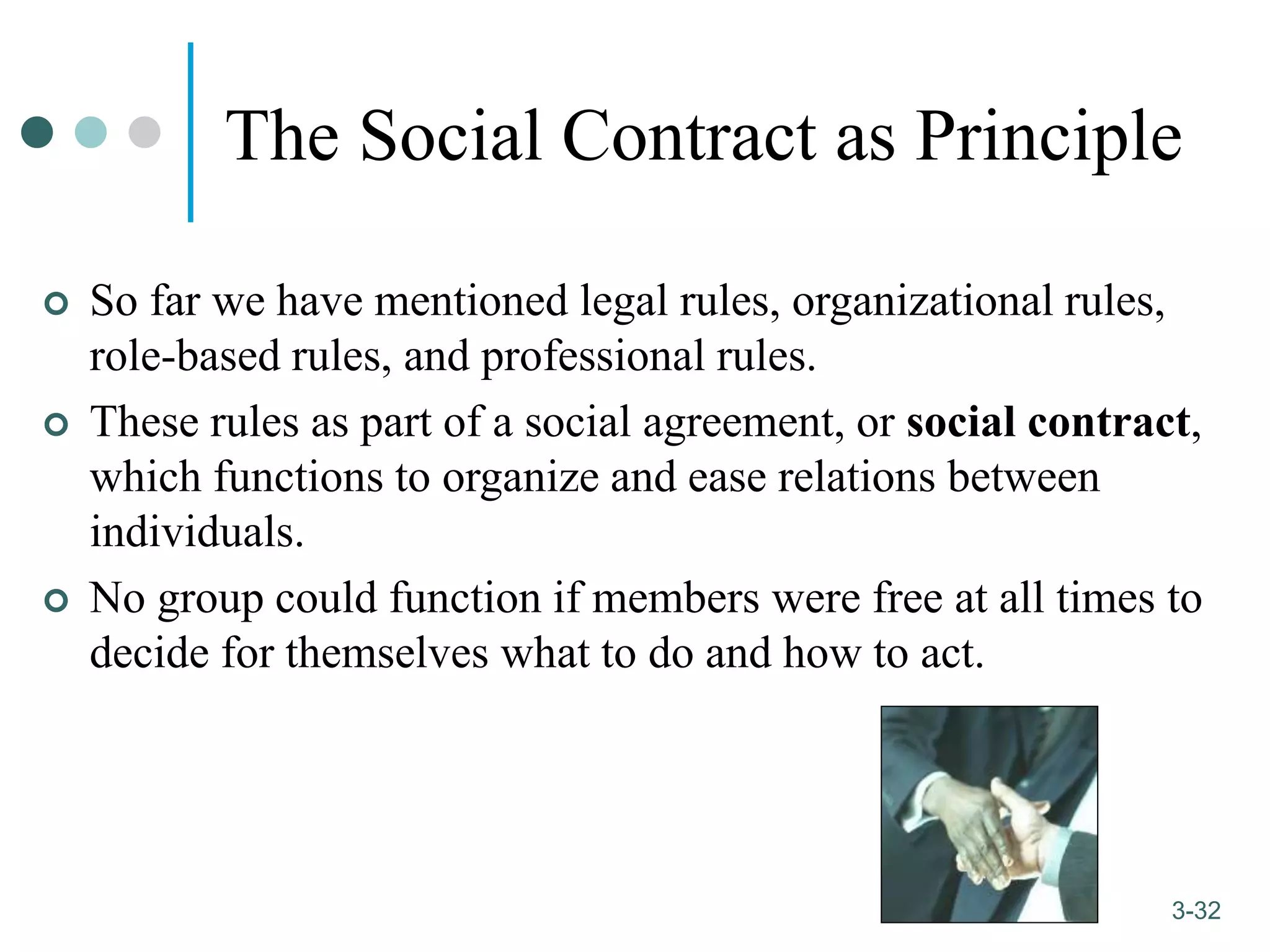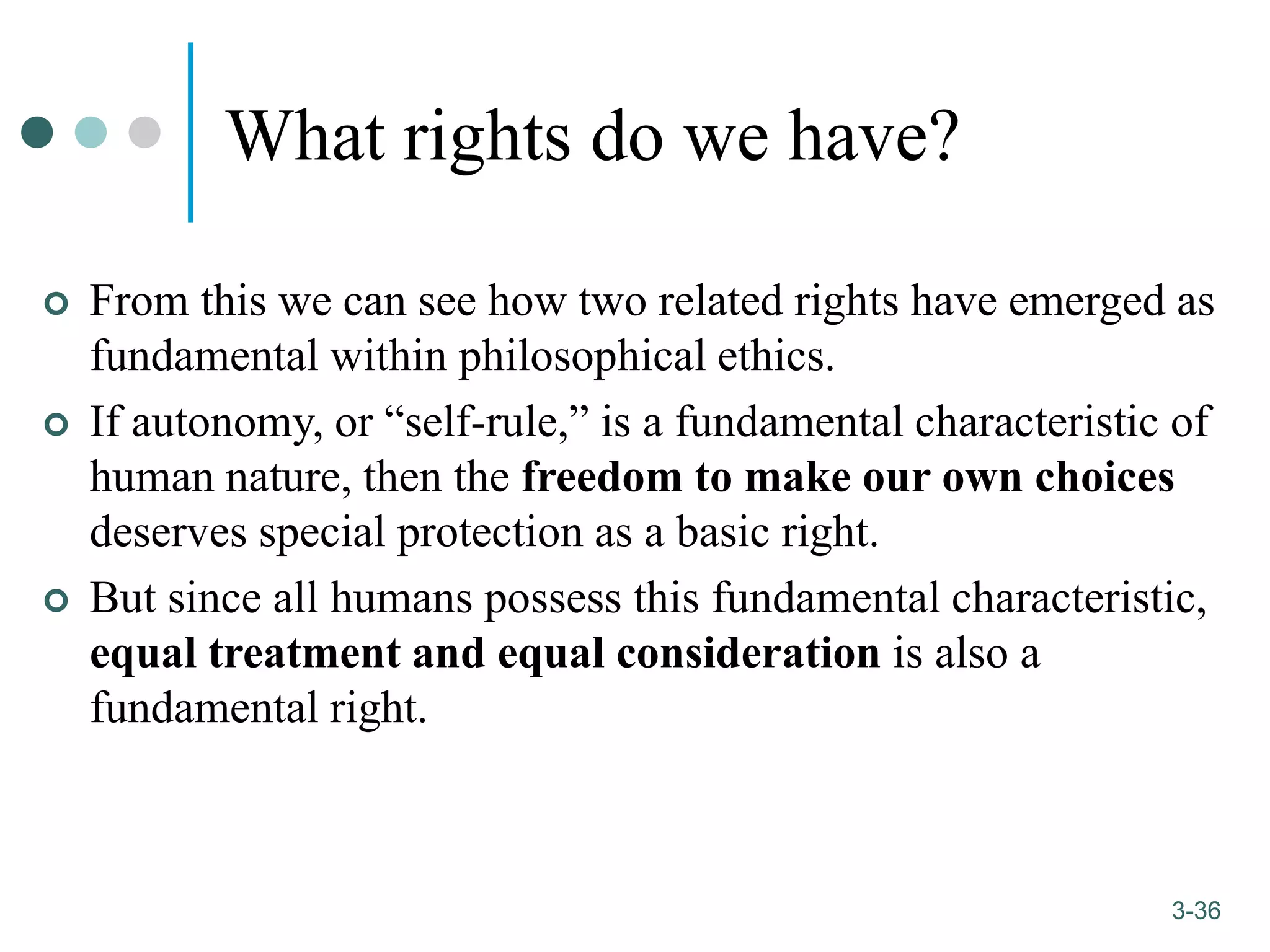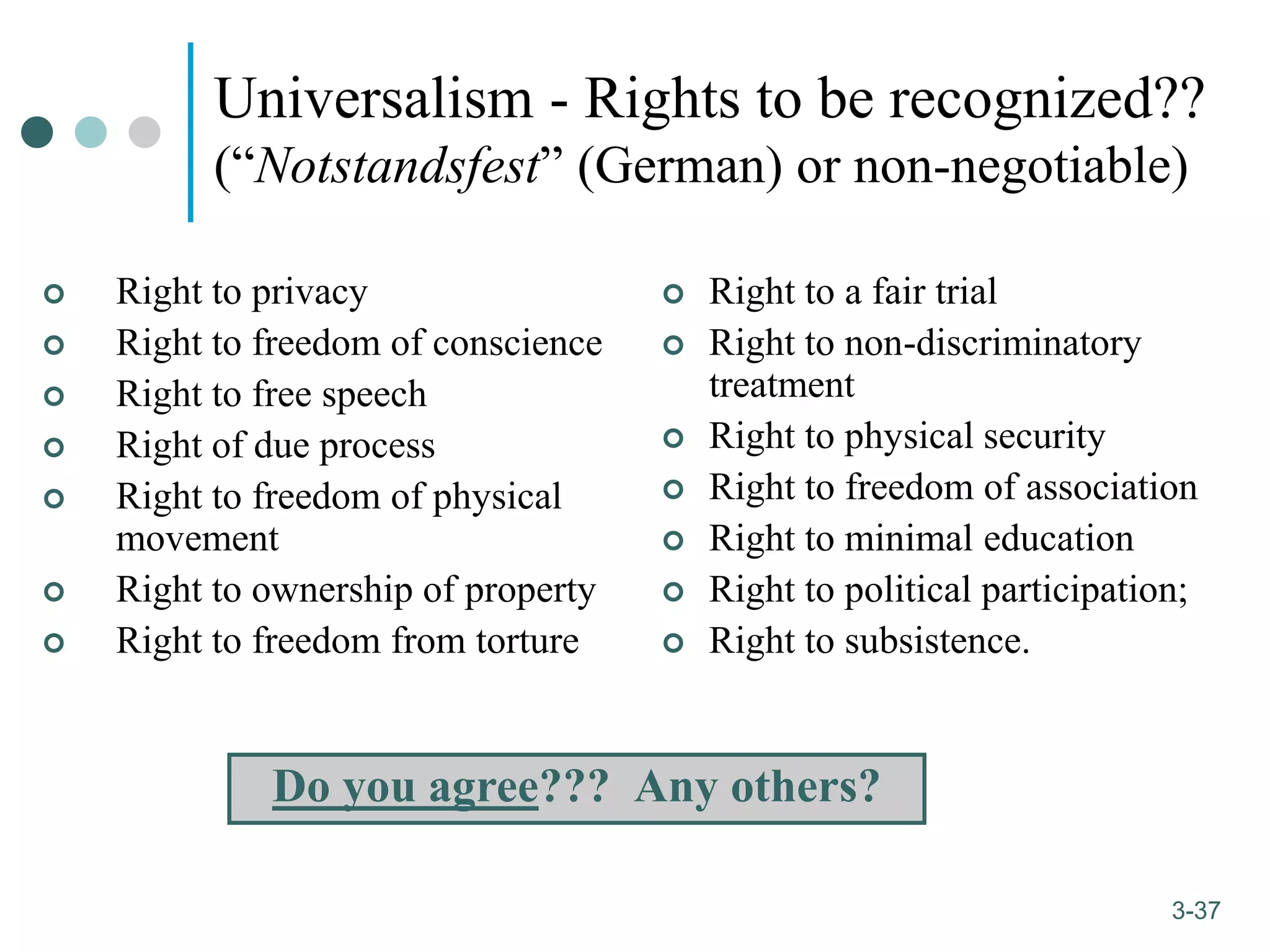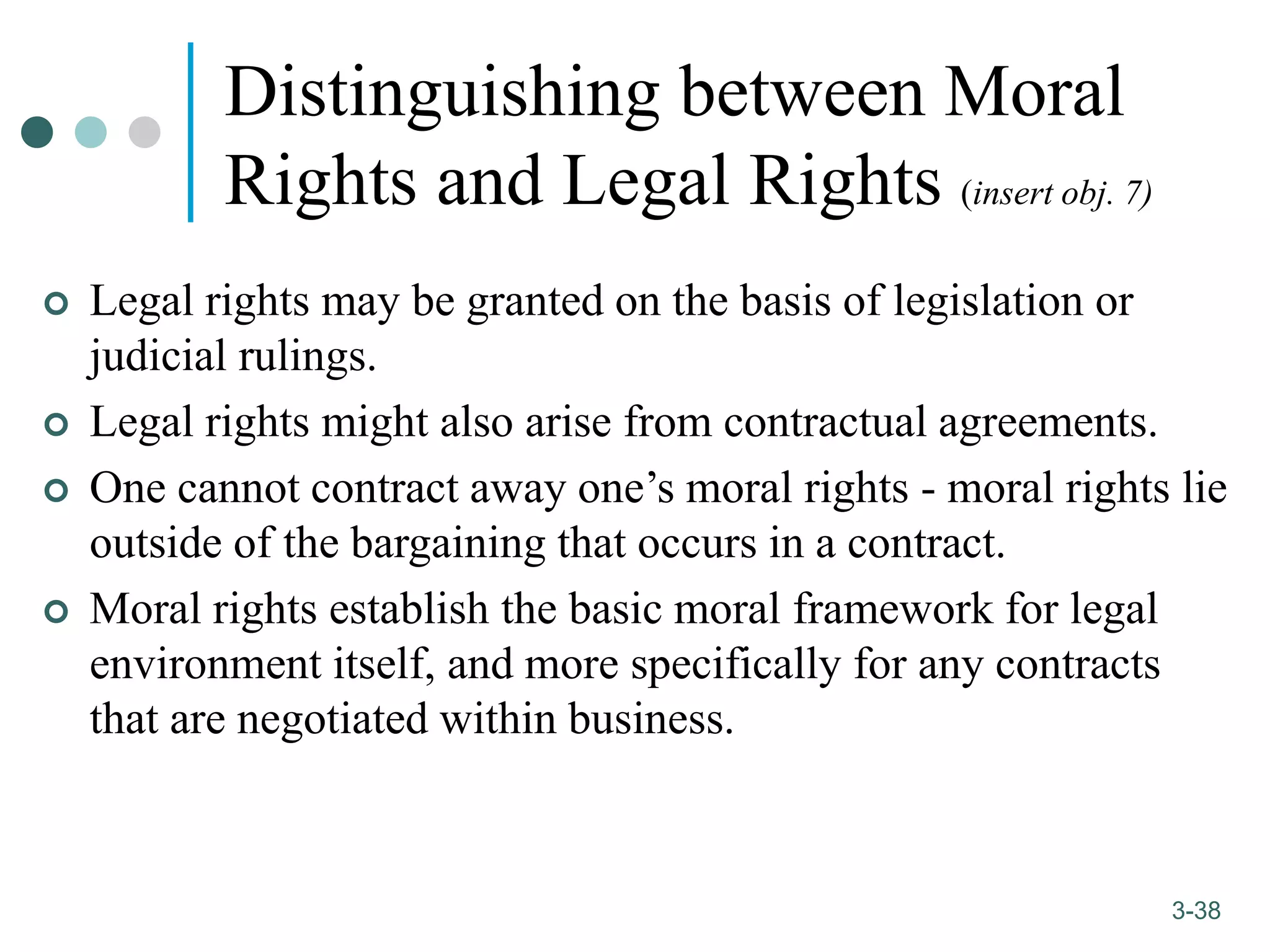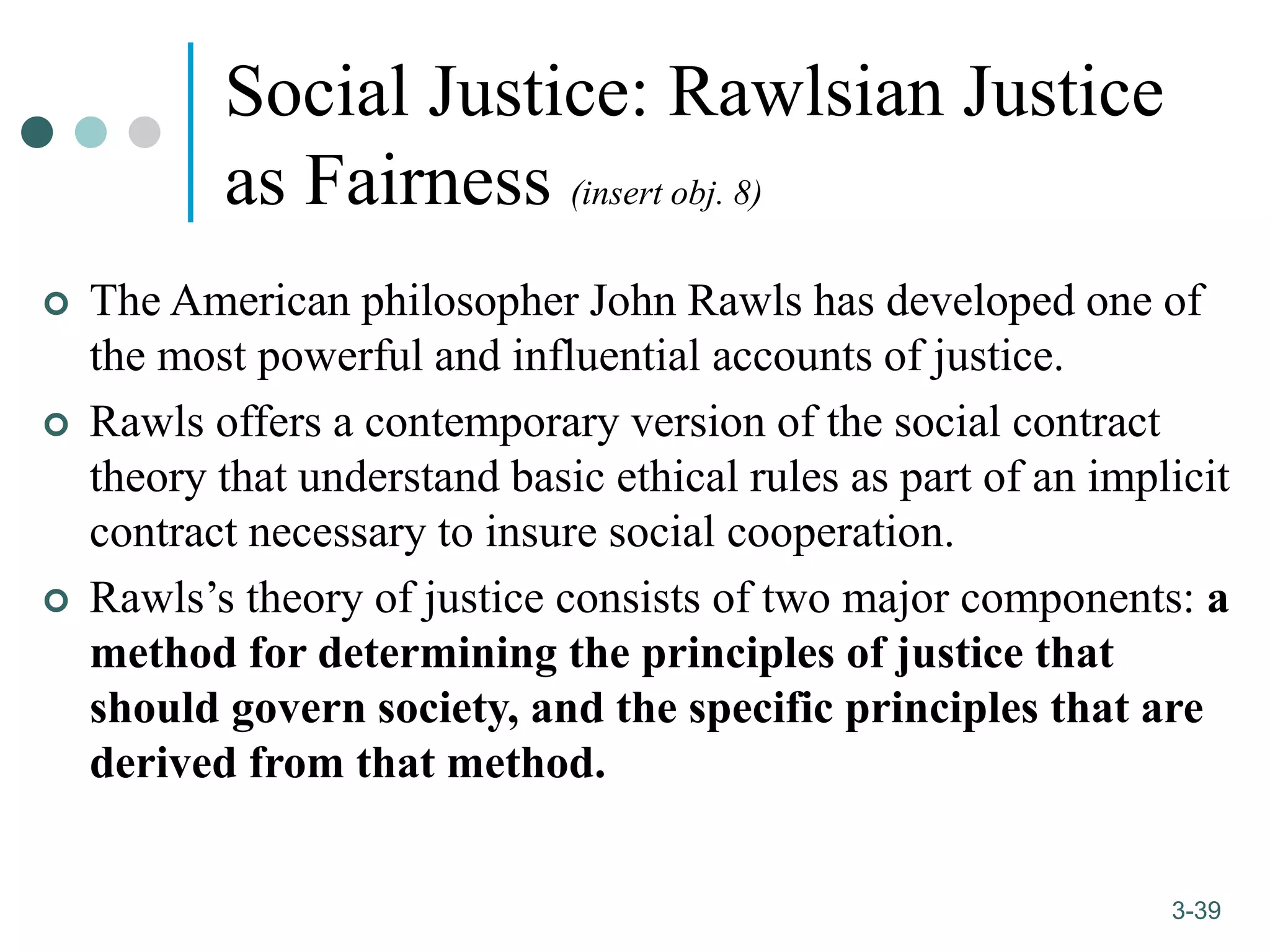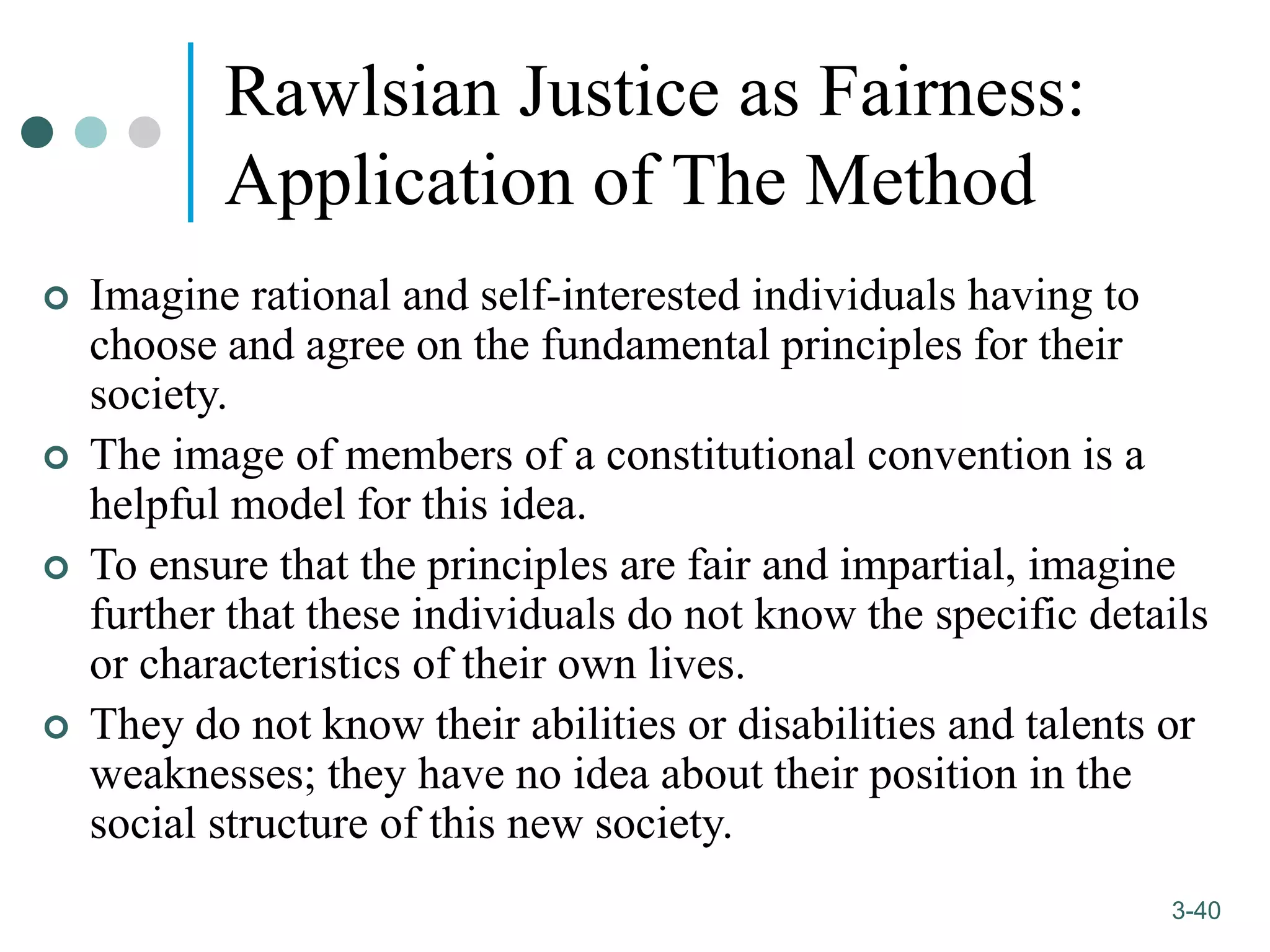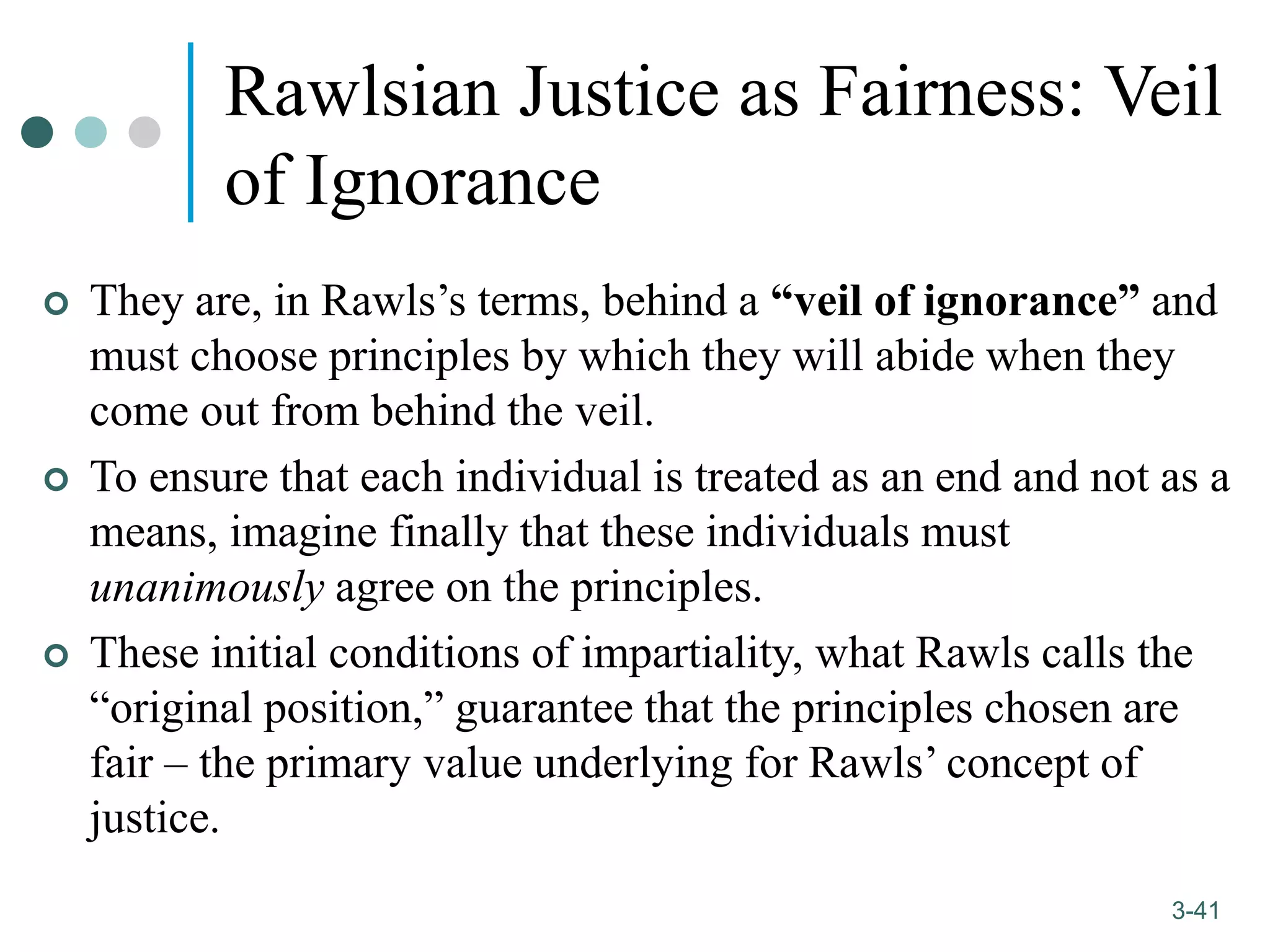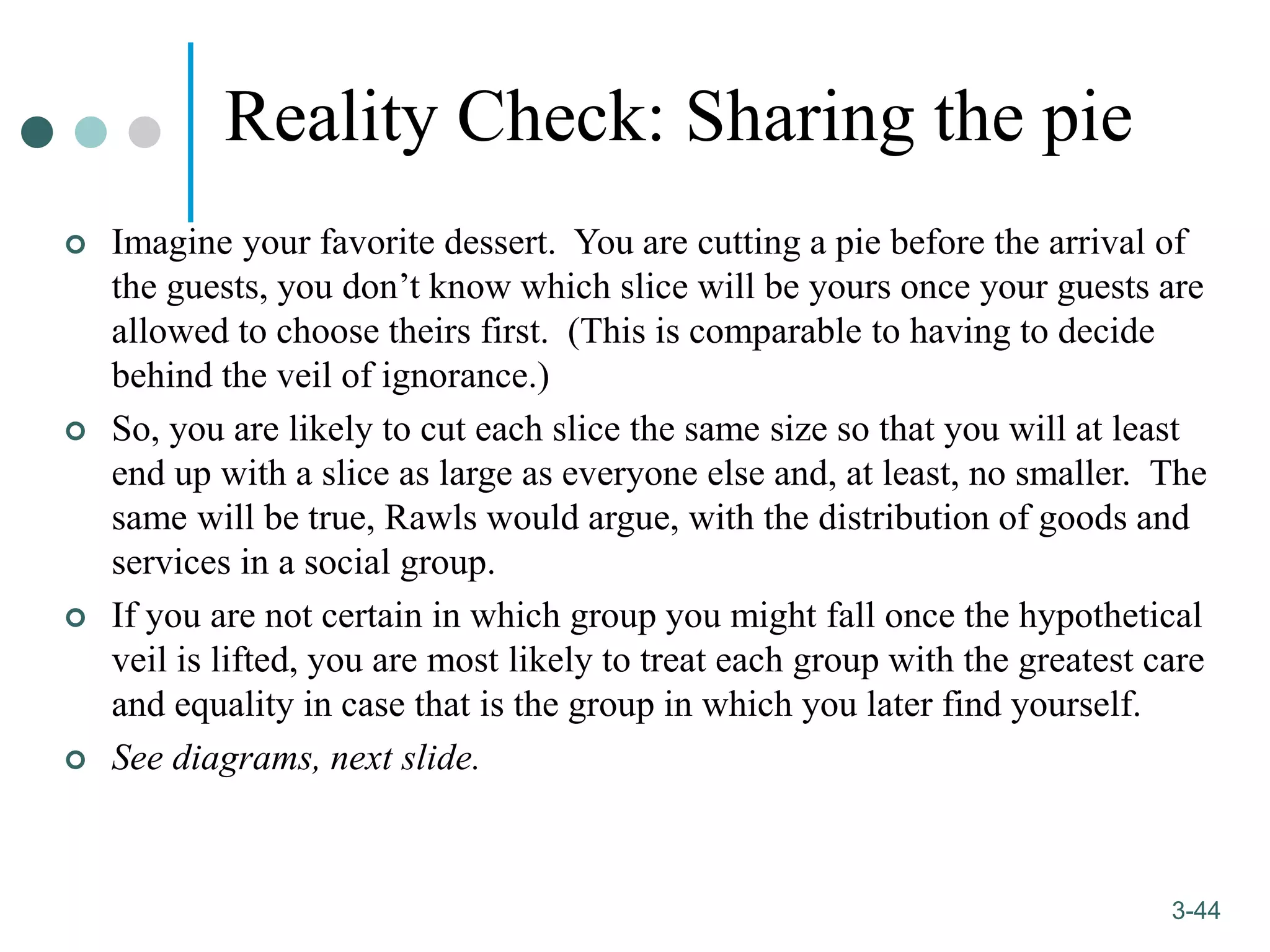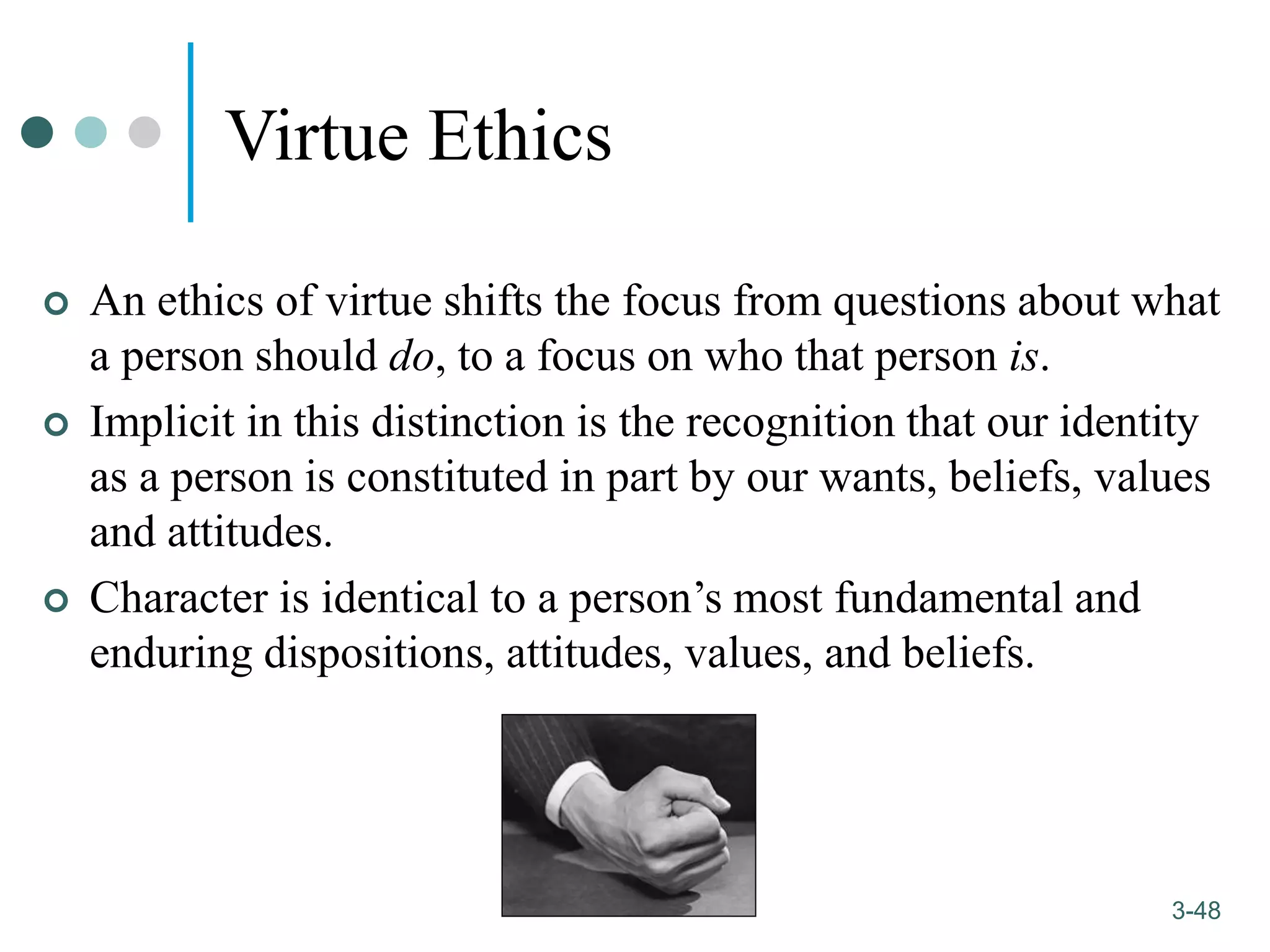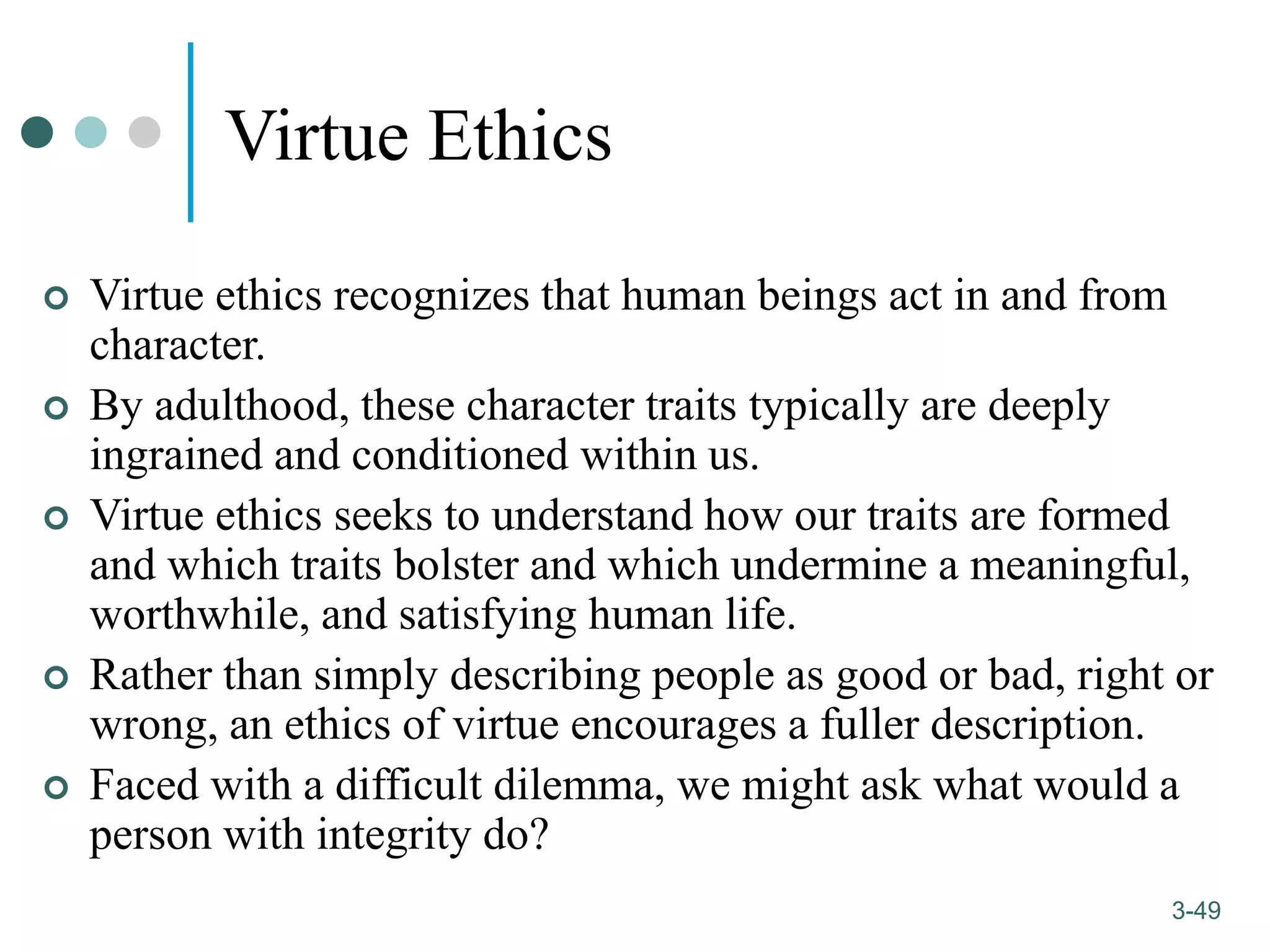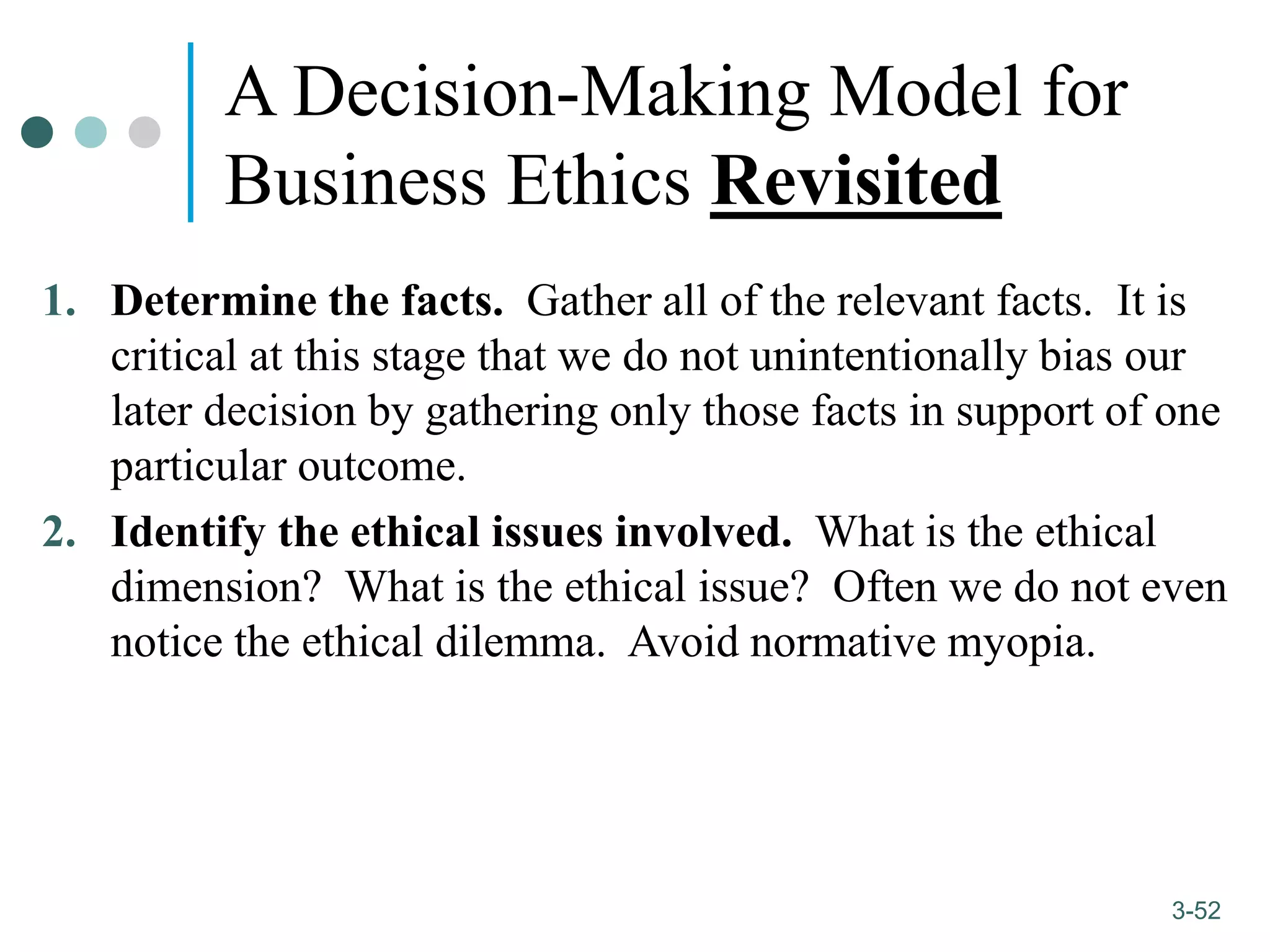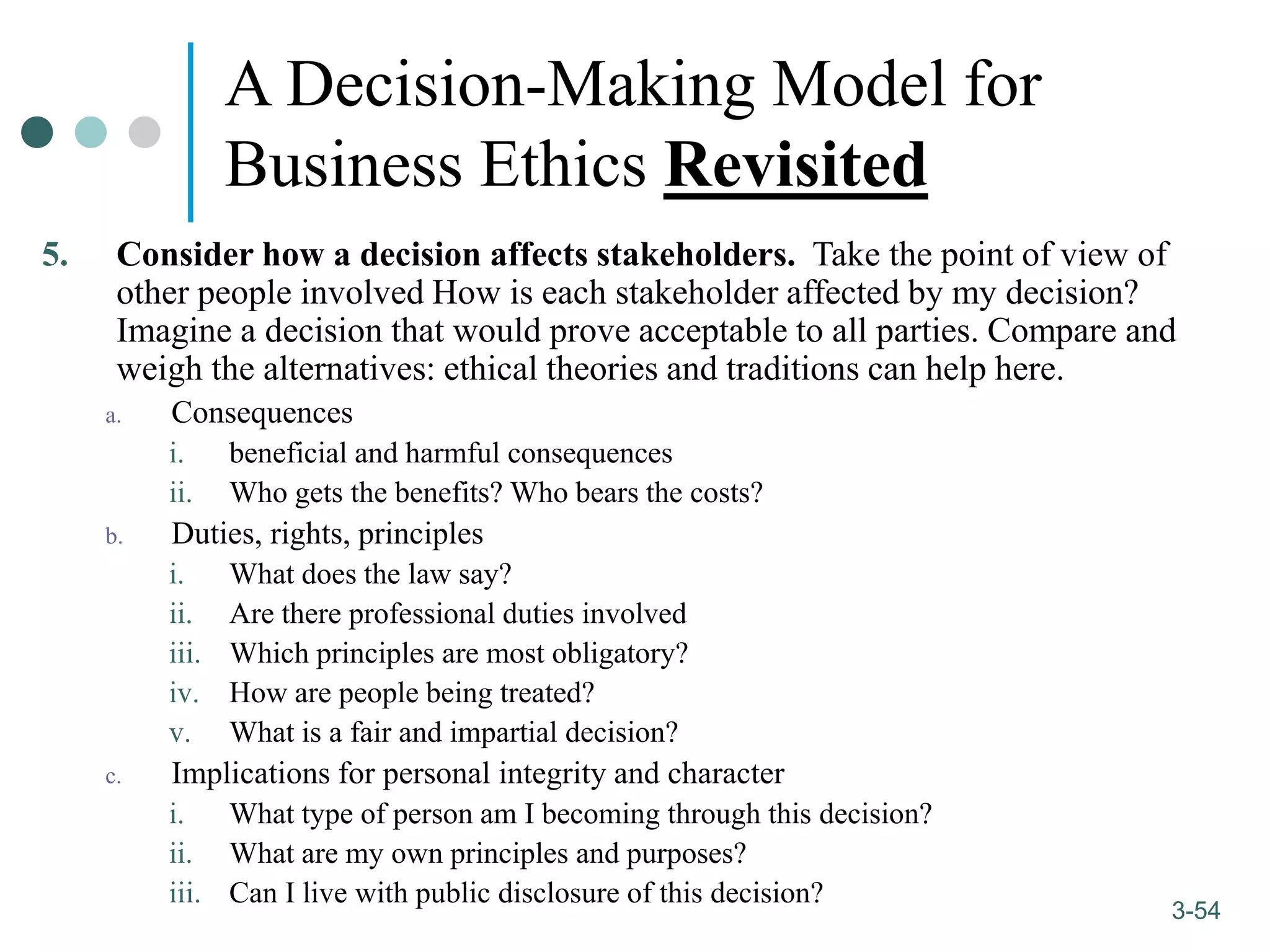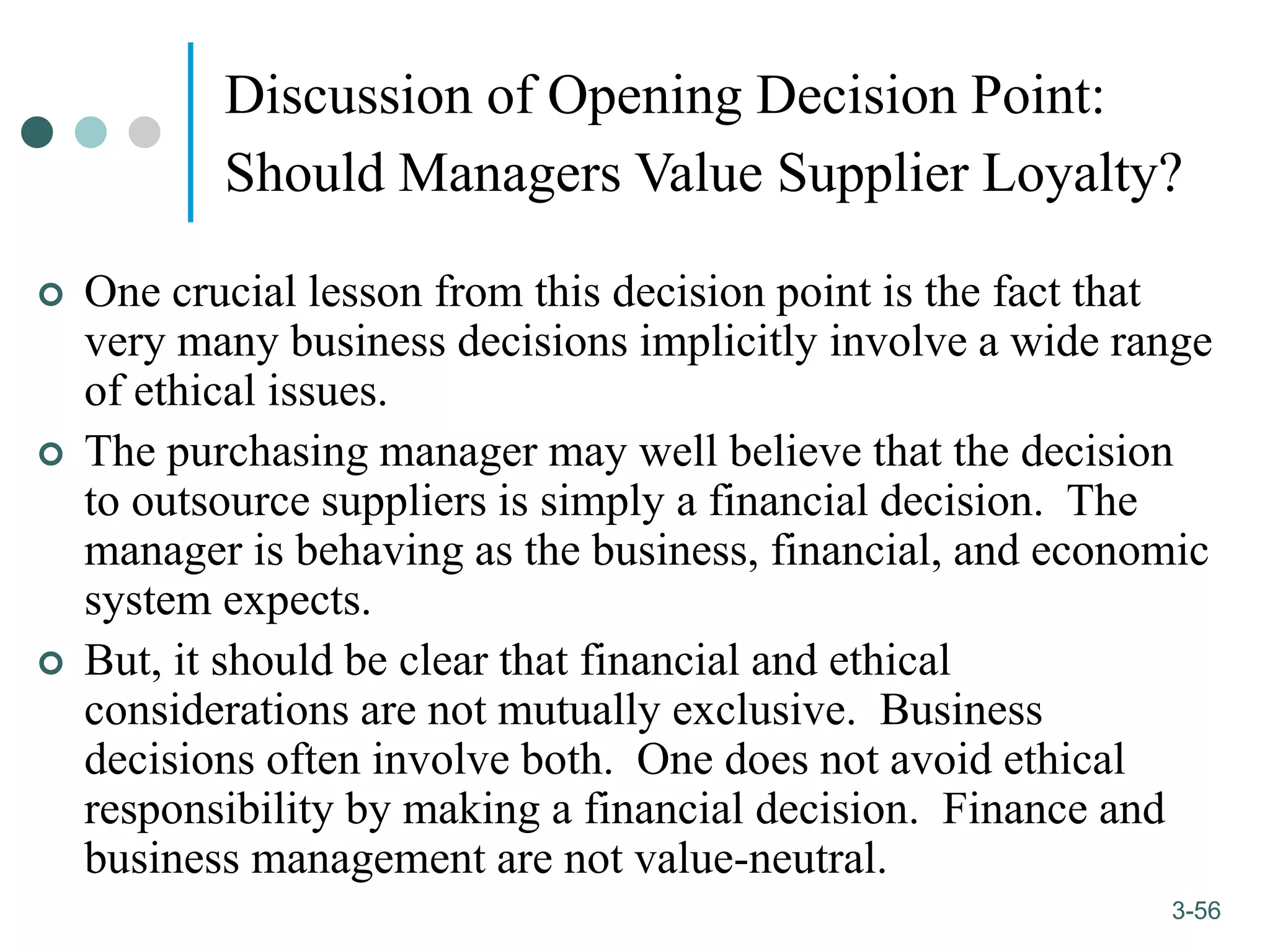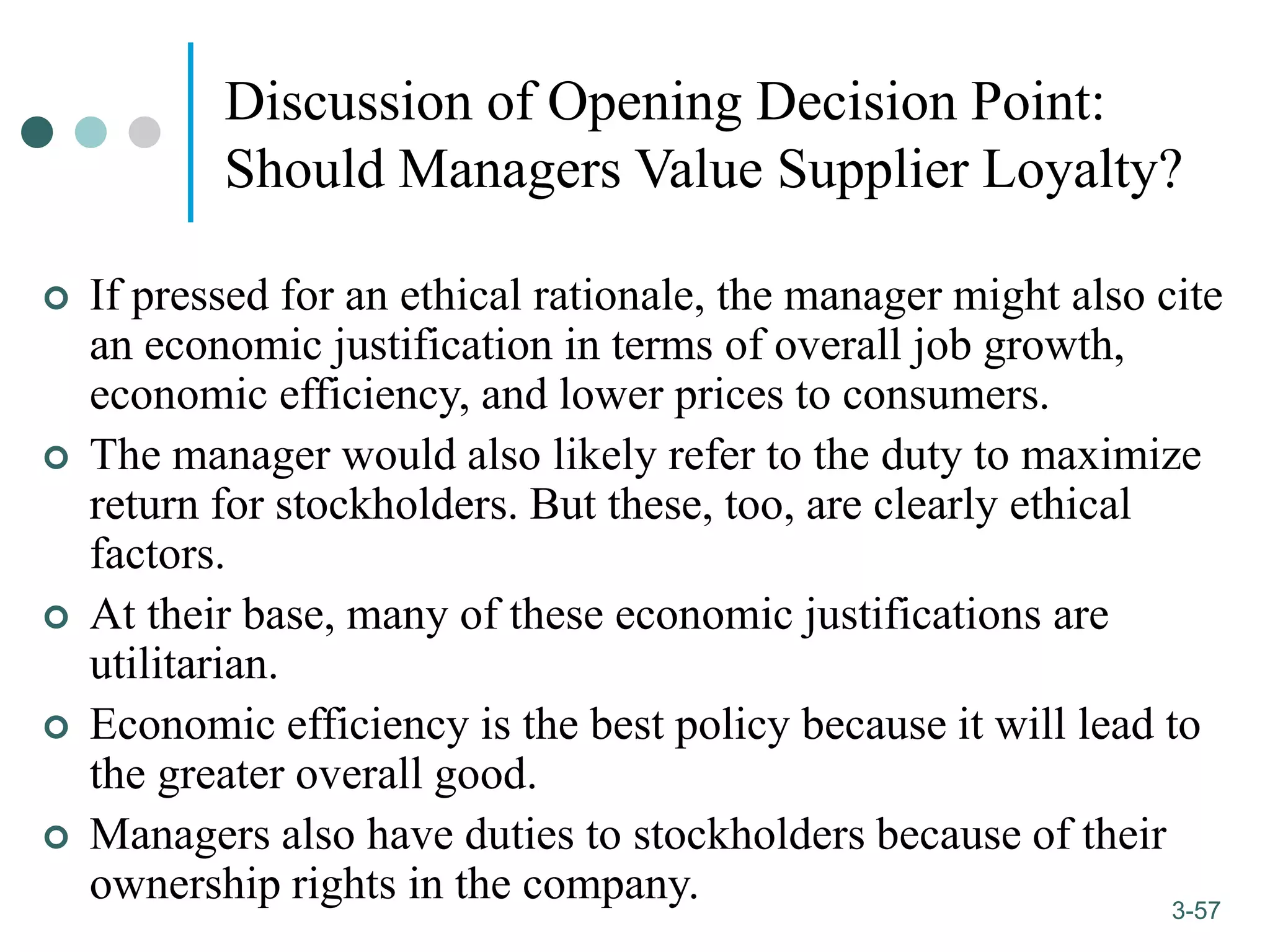This document provides an overview of a chapter that discusses different ethical theories and decision-making frameworks. It introduces utilitarianism, which argues that actions should be judged based on their consequences and promoting the greatest happiness for the greatest number. It also discusses deontological ethics, which focuses on following ethical principles and duties even if the consequences are not optimal. The document provides examples of how these theories apply to business decisions and discusses some of their limitations. It also introduces concepts like moral rights, duties, and the social contract as the basis for ethical principles.
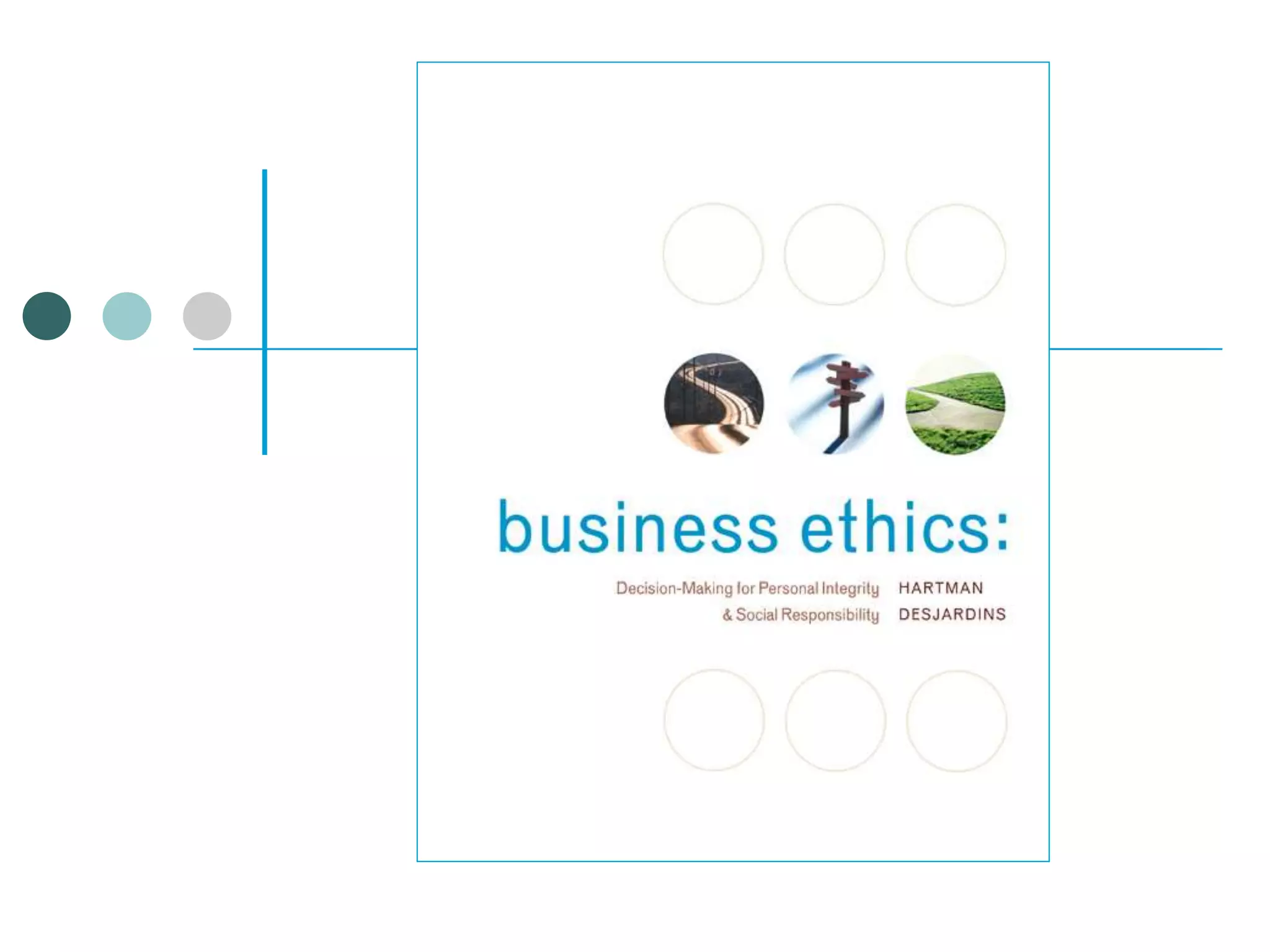
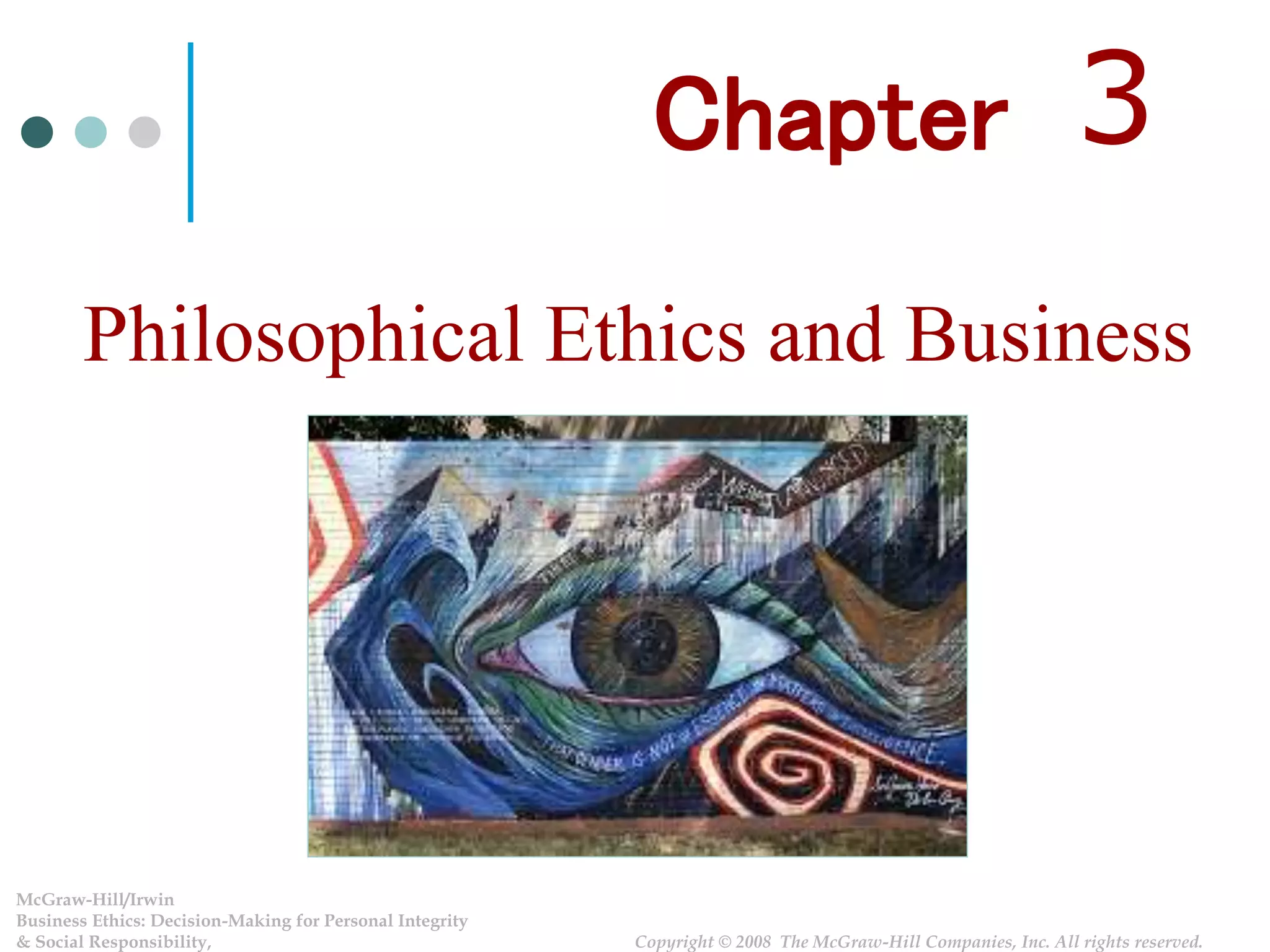


![1-5
3-5
Opening Decision Point: Should
Managers Value Supplier Loyalty?
How would you describe the decision faced by the purchasing
manager? Is it an ethical issue at all? Why or why not?
Are there any factual questions that you would want to resolve
before making such a decision?
What alternatives are available for the purchasing manager?
What role, if any, should the principle of loyalty play in business
decisions?
Do you agree that employees have a duty to seek the greatest
profits for their companies? What values are promoted by such a
duty?
[continued]](https://image.slidesharecdn.com/ba362ch003-230704071950-c3770492/75/BA-362-ch003-ppt-5-2048.jpg)

